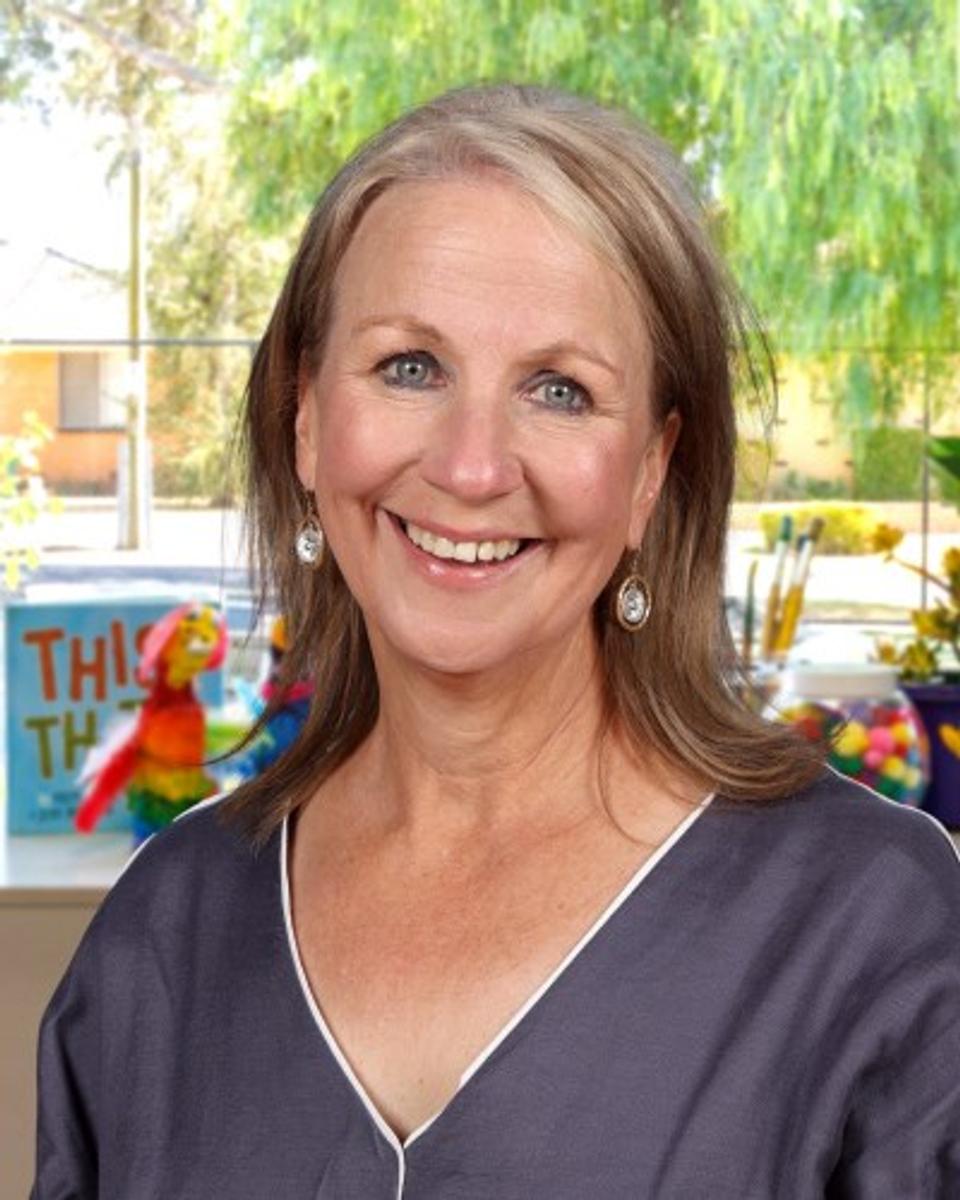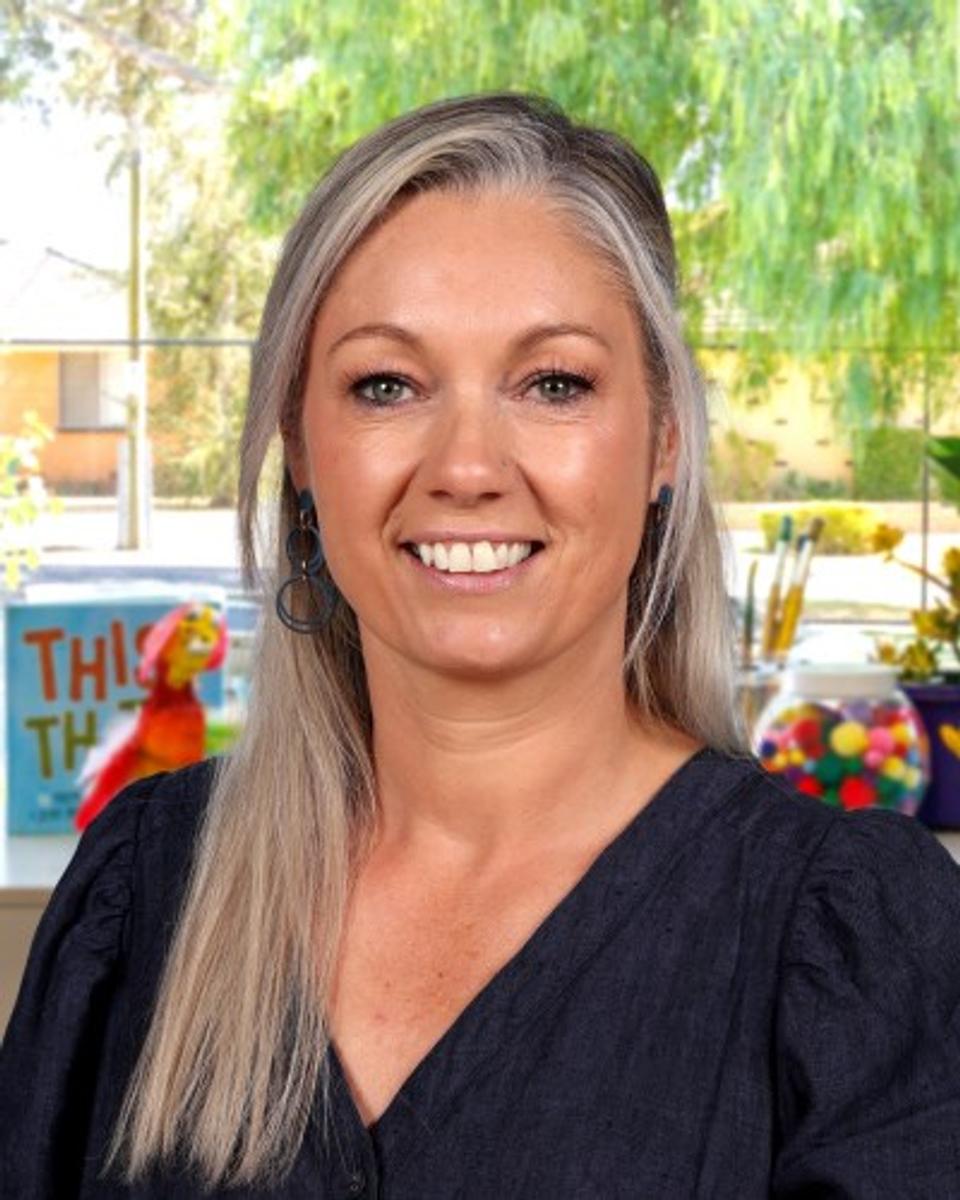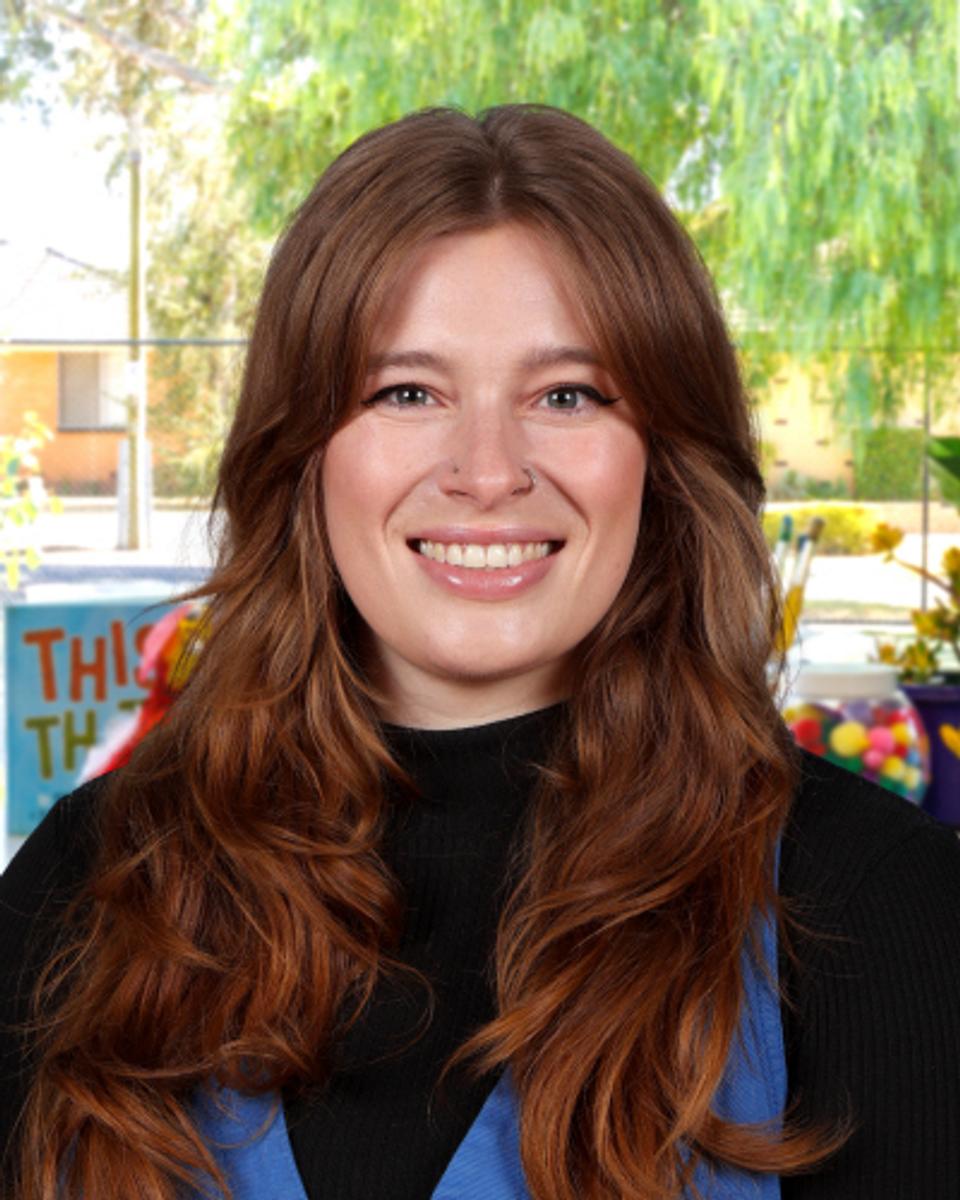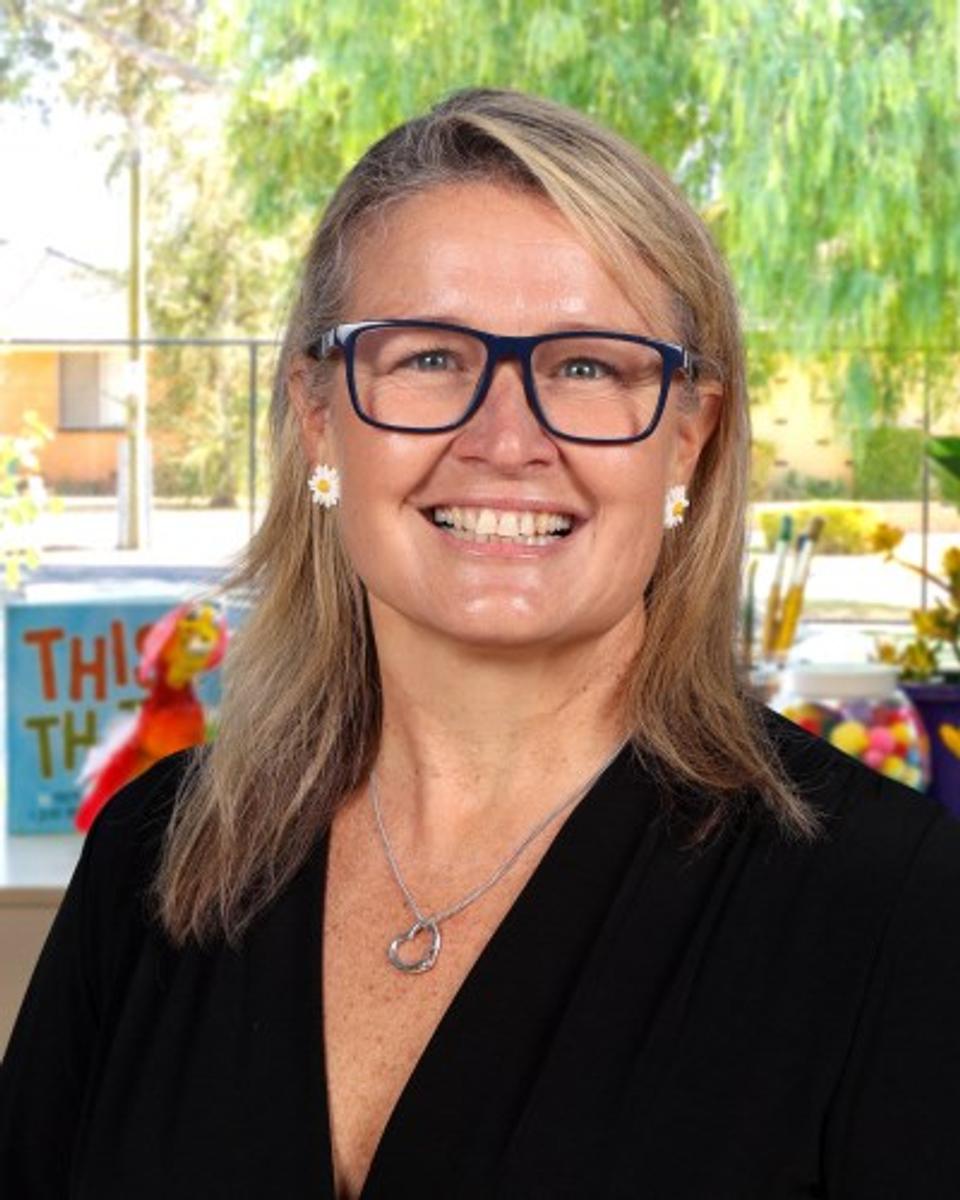National Reconciliation Week 2025 – Bridging Now to Next
May 27th - June 3rd, 2025

National Reconciliation Week 2025 – Bridging Now to Next
May 27th - June 3rd, 2025
This week at ENPS, we proudly celebrated National Reconciliation Week, embracing this year’s powerful theme: Bridging Now to Next. This theme calls on all Australians to reflect on the steps already taken toward reconciliation, and to look ahead with determination and commitment to continue building respectful relationships between Aboriginal and Torres Strait Islander peoples and the wider community.
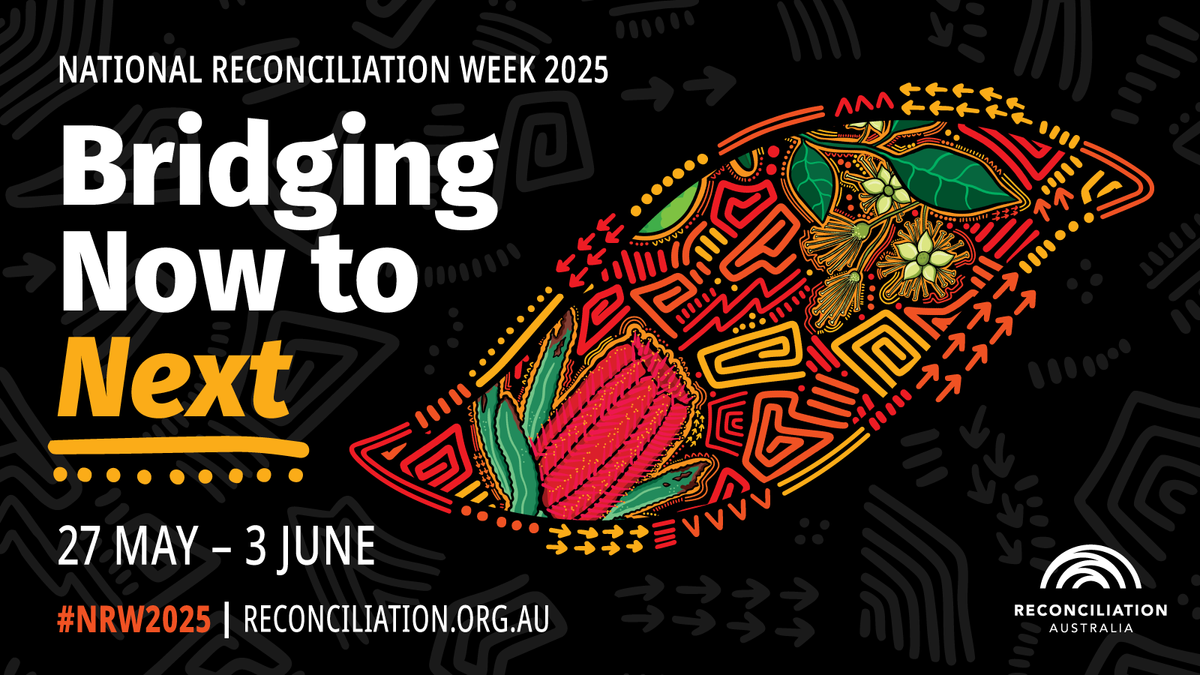

Throughout the week, our students engaged in meaningful learning experiences that deepened their understanding of Indigenous cultures, histories, and contributions. From storytelling and art to discussions and classroom activities, these moments offered valuable insights into the richness and resilience of the world’s oldest continuing cultures. These included:
Foundation:
This week Foundation students have been learning about National Reconciliation Week by inquiring into the Aboriginal and Torres Strait Islander flags, and learning about where we live in Melbourne, Victoria, Australia, which is on the land of the Wurundjeri people. They inquired into the purpose of an Acknowledgement of Country and even learned and practised their own. It goes:
Here is the land,
Here is the sky,
Here are my friends,
And here am I.
We thank the Wurundjeri people for sharing their land.
We promise to take care of it and protect it.
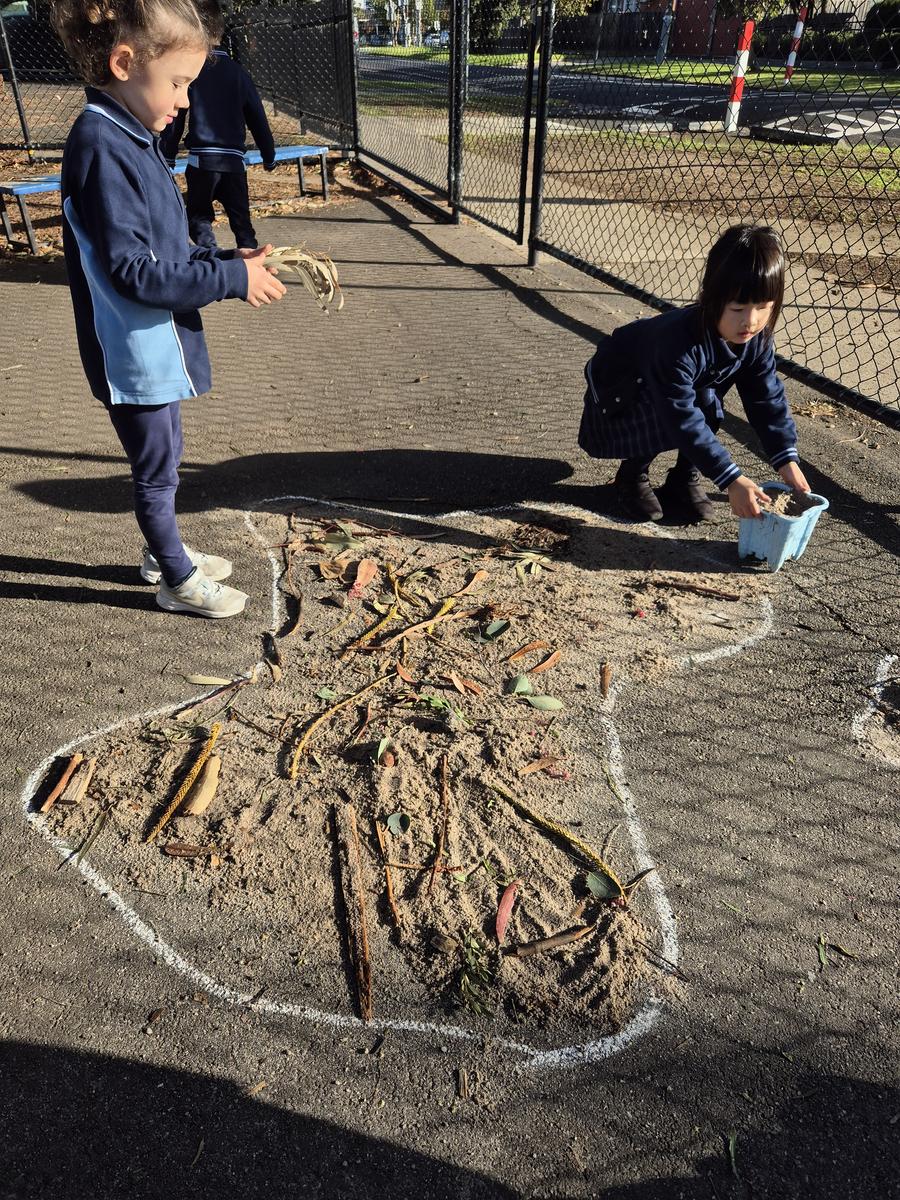
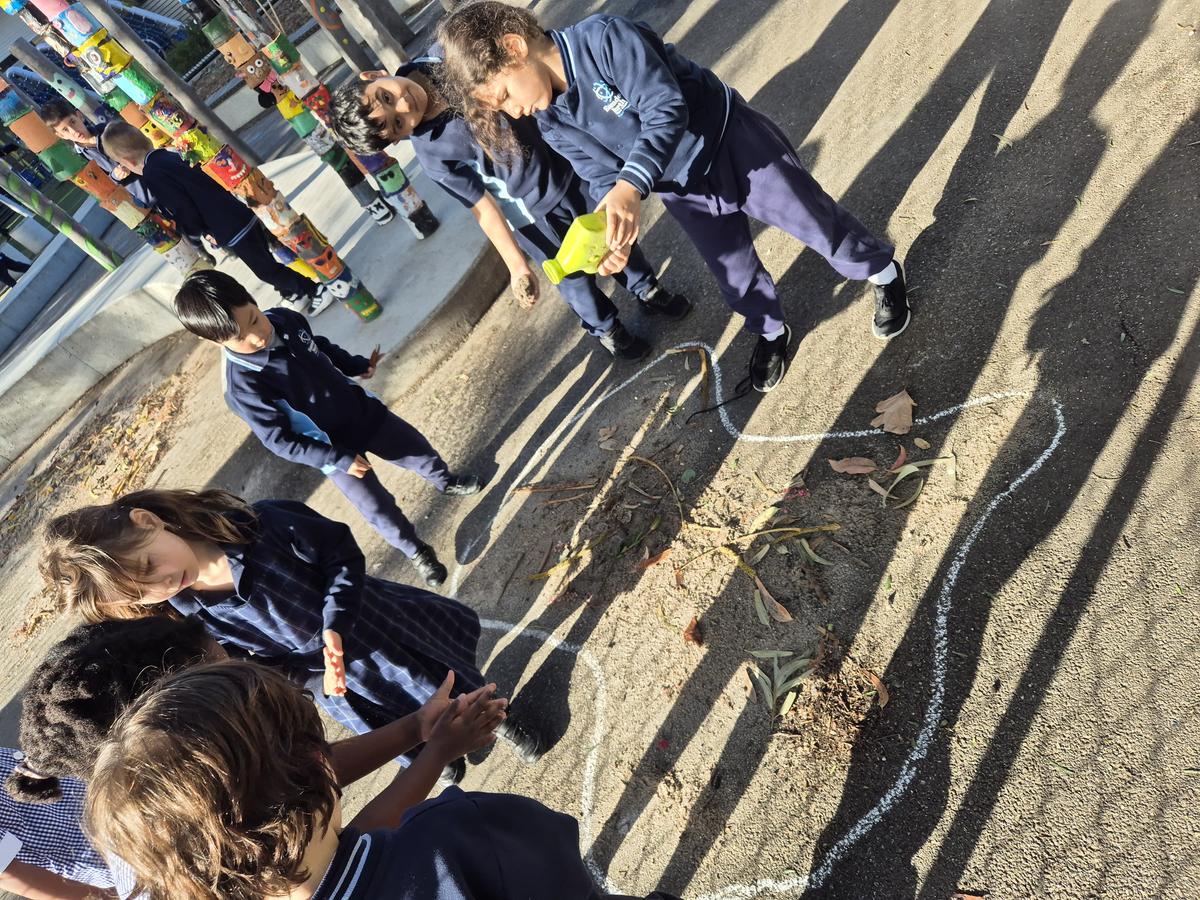
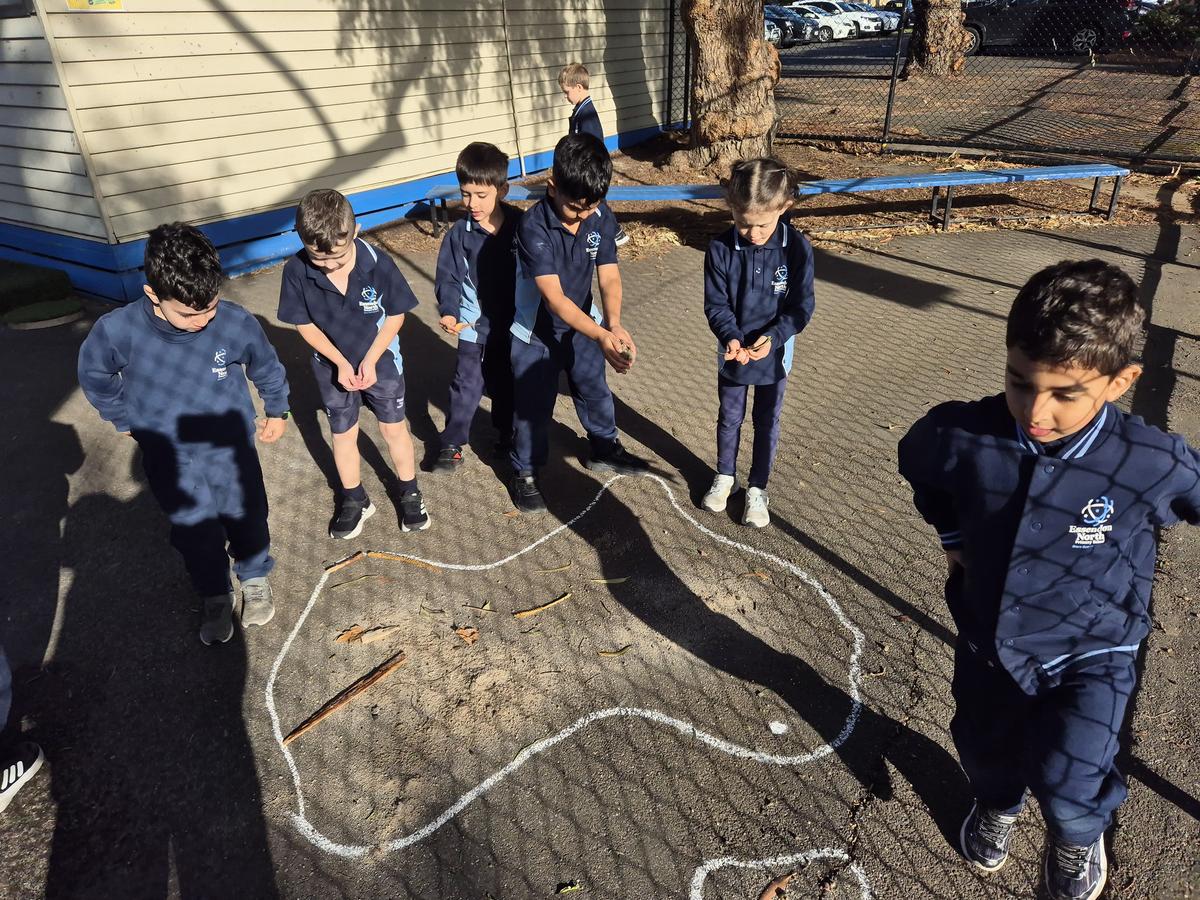
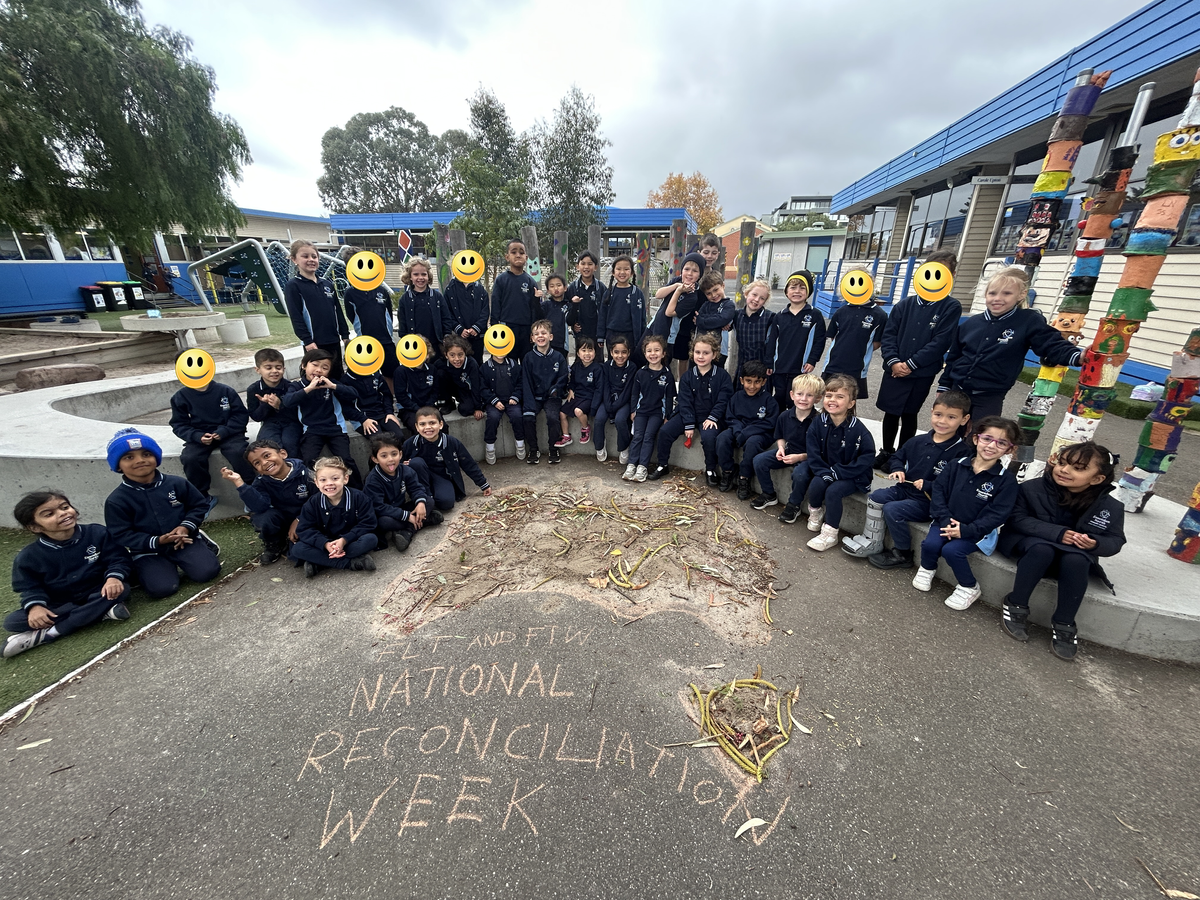
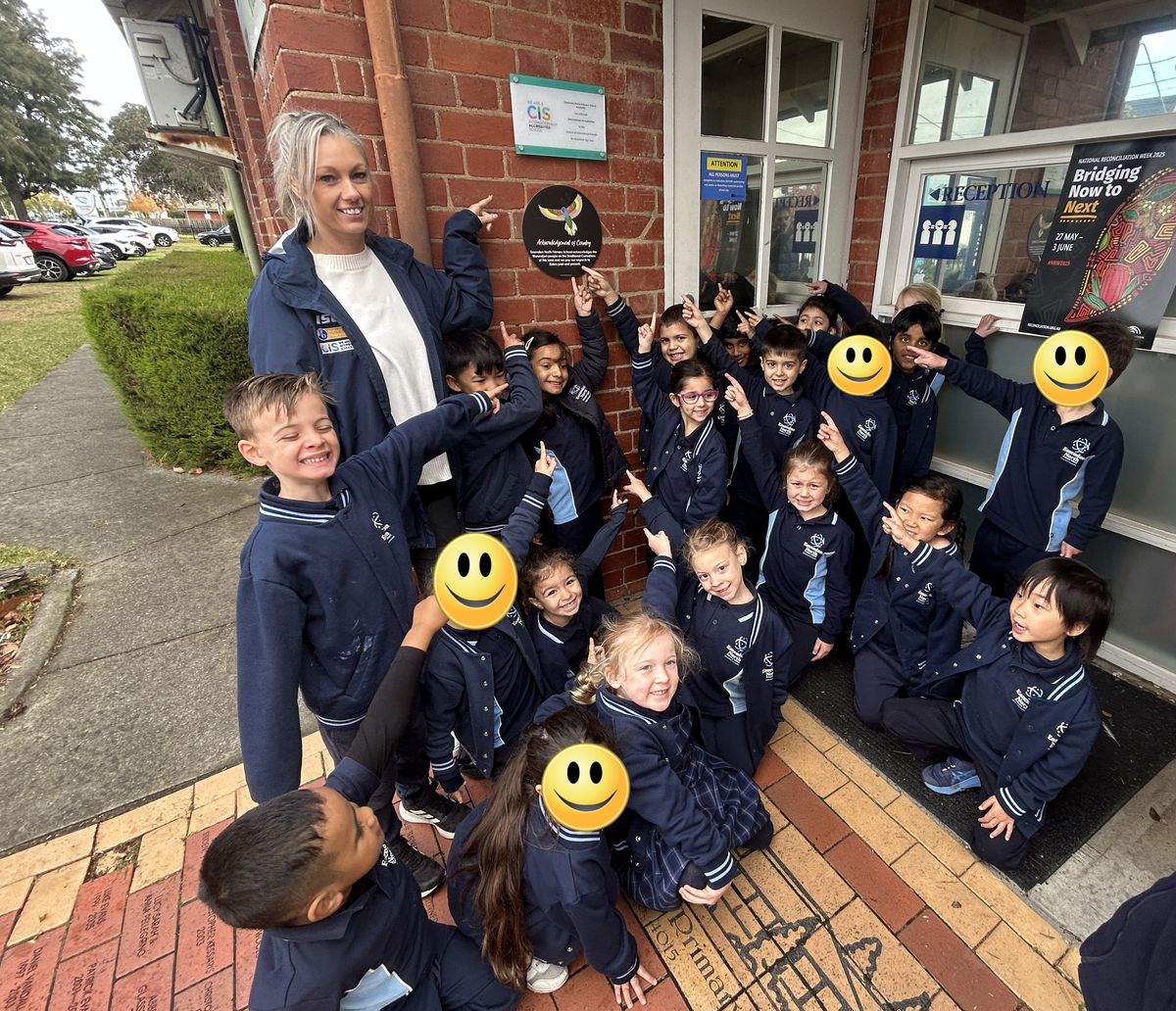
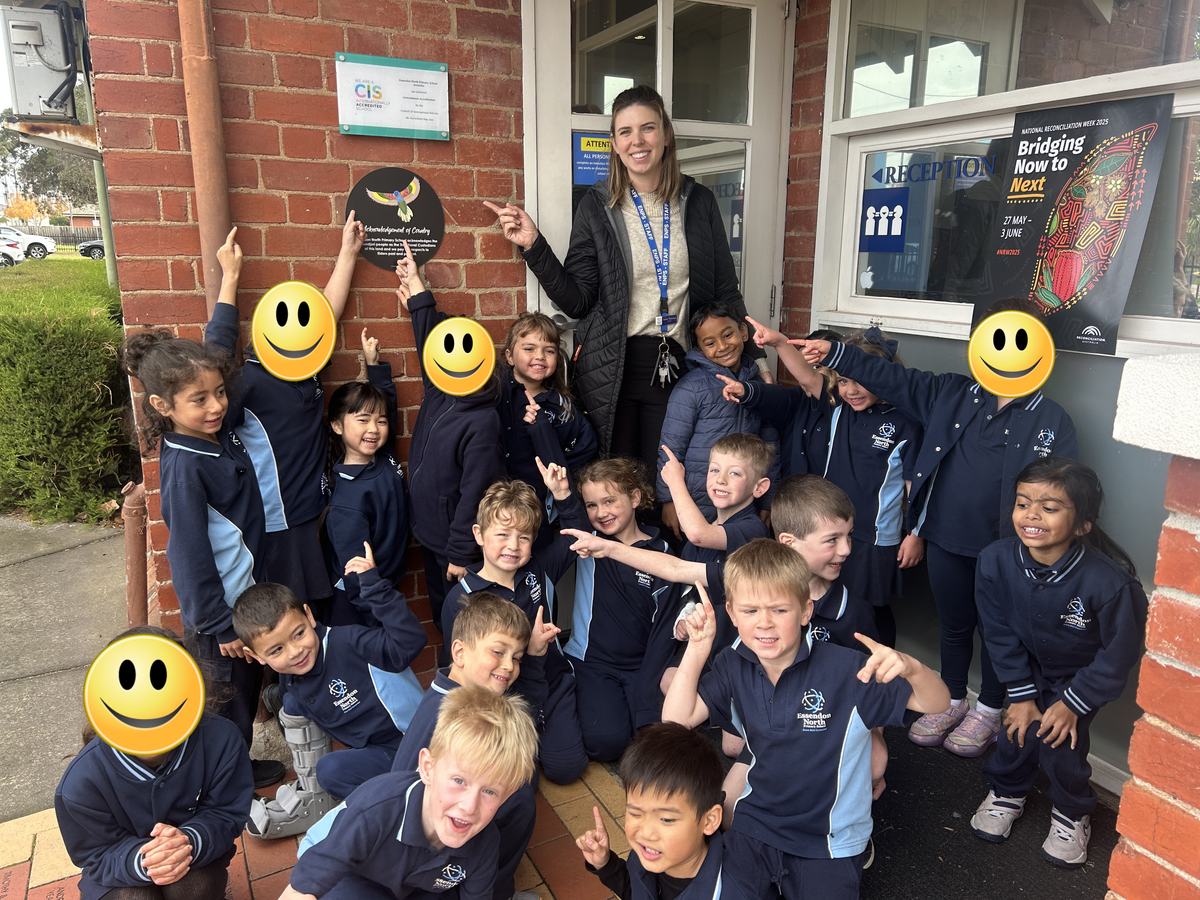
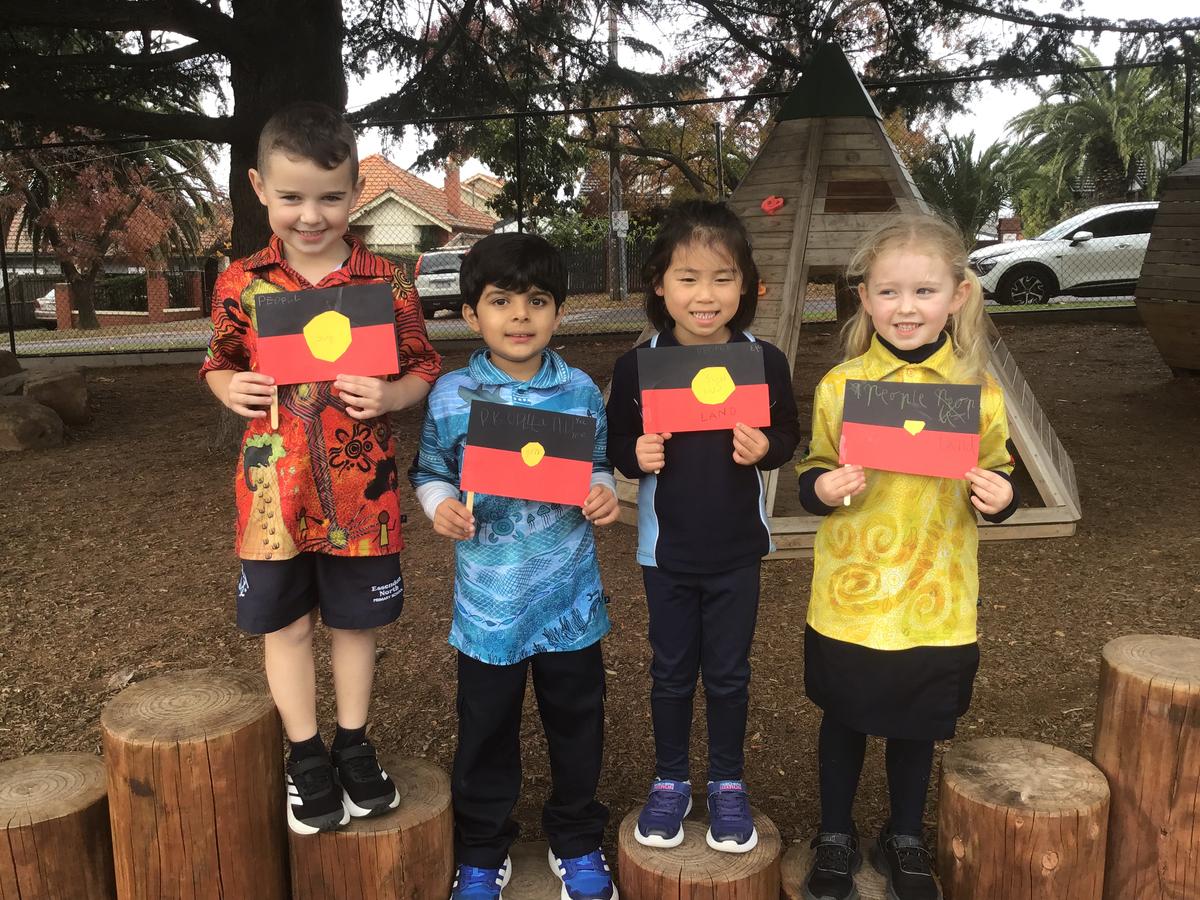







Year One:
In Year One our students have been exploring the meaning of Reconciliation Week through the powerful story of Bunjil the Eagle, a creator spirit deeply respected in Aboriginal culture.
We began by acknowledging Country and learning about the Dreamtime - the rich storytelling tradition that shares values, history, and connection to land. Students watched and discussed the story of Bunjil, reflecting on questions like: Who is Bunjil? What can we learn from his story? and How do these stories help us respect and understand Aboriginal culture today?
To deepen their connection, students created their own Bunjil-inspired artworks using natural materials. The eagles were designed to symbolise bridging cultures, connection, and respect for Country. As they shared their creations, students explained their artistic choices and reflected on how their work links to this year’s theme: “Bridging Now to Next”.
We also explored the themes of family, belonging, and healing through the book Found by Bruce Pascoe. We discussed the importance of Sorry Day and students created meaningful drawings of their home and family, sharing what makes these places and people special to them.
Year Two:
In Year Two students inquired into Reconciliation week through dreamtime stories and creative art. We introduced Dreamtime and explored its significance in Aboriginal culture, posing the question, “Why do you think stories are important in a culture?”. Then students read a dreamtime story about Bunjil the Eagle and considered how stories like Bunjil’s help us understand and respect Aboriginal culture today and into the future.
Students then created their own Bunjil artwork using natural materials. The use of natural materials enabled us to have a conversation about land and country and its significance. Finally we wrote sentences about our learning and appreciated each others’ creations.
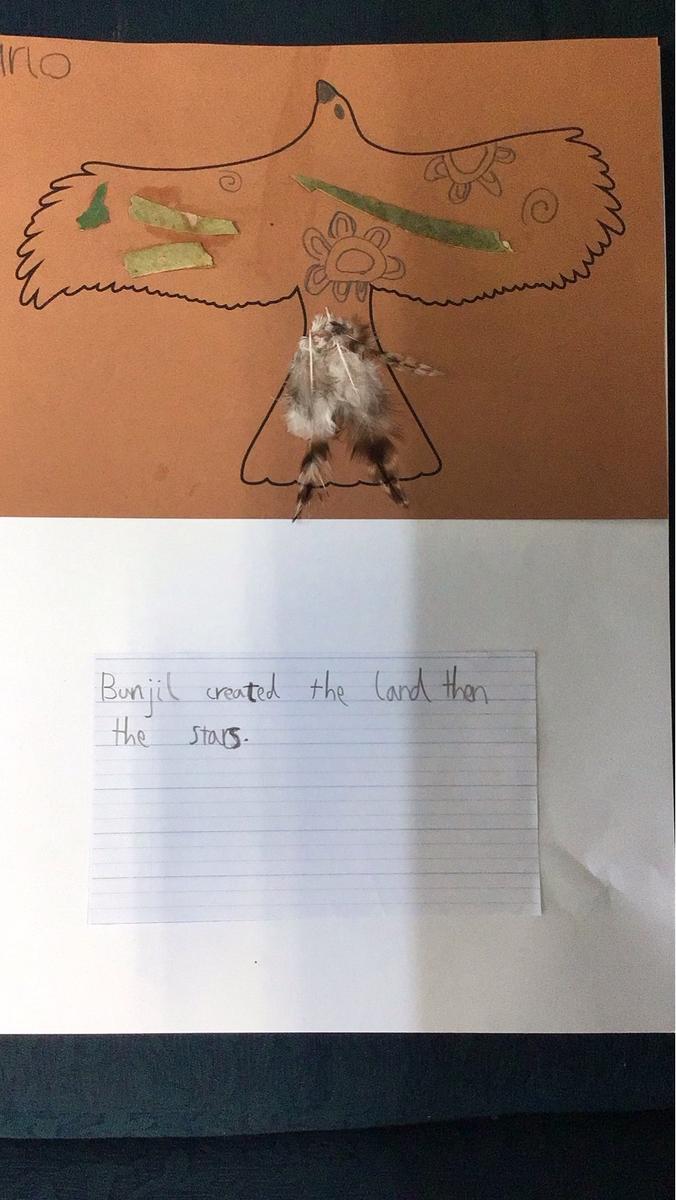
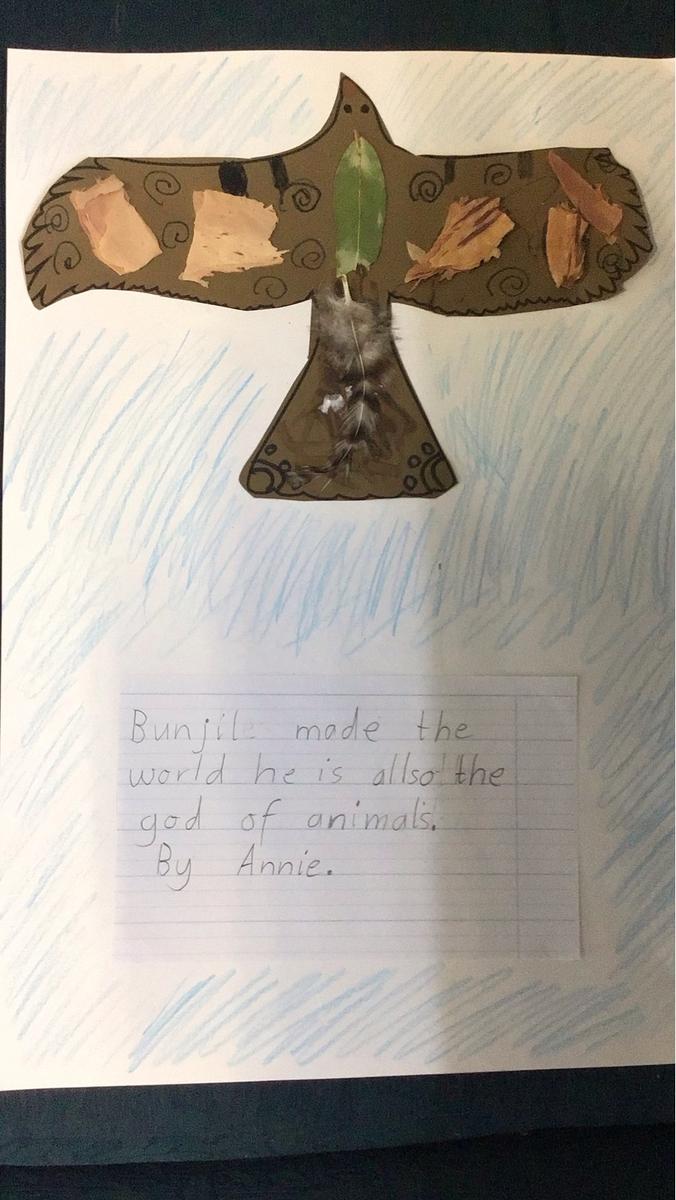
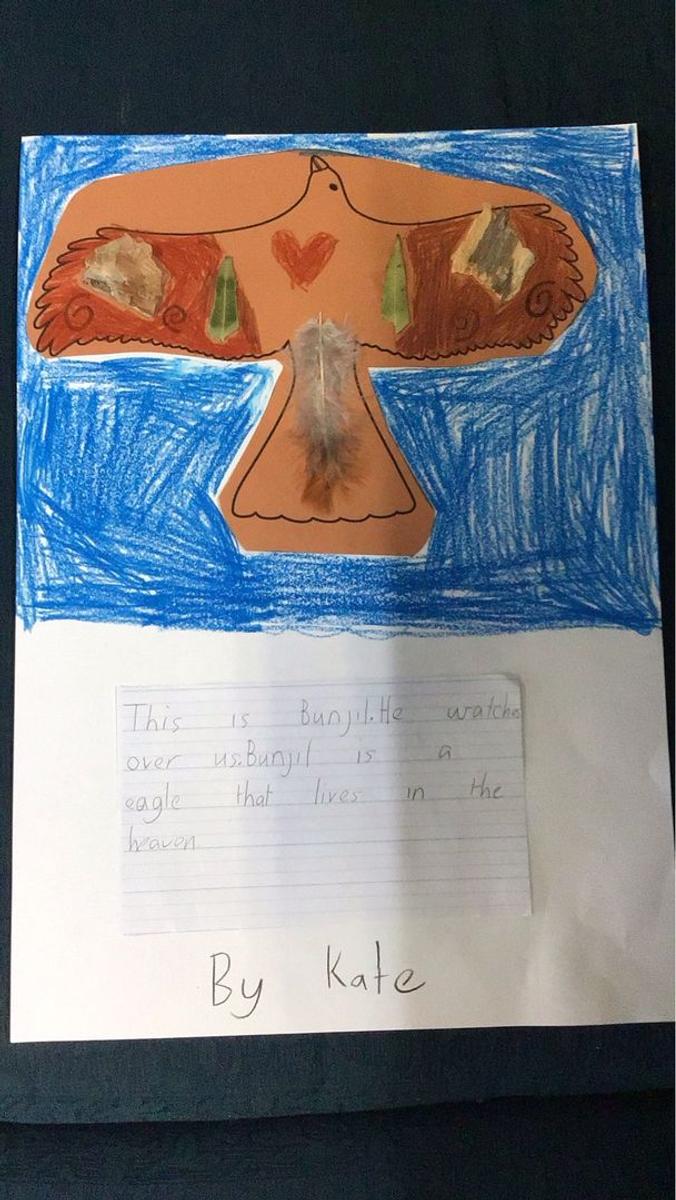
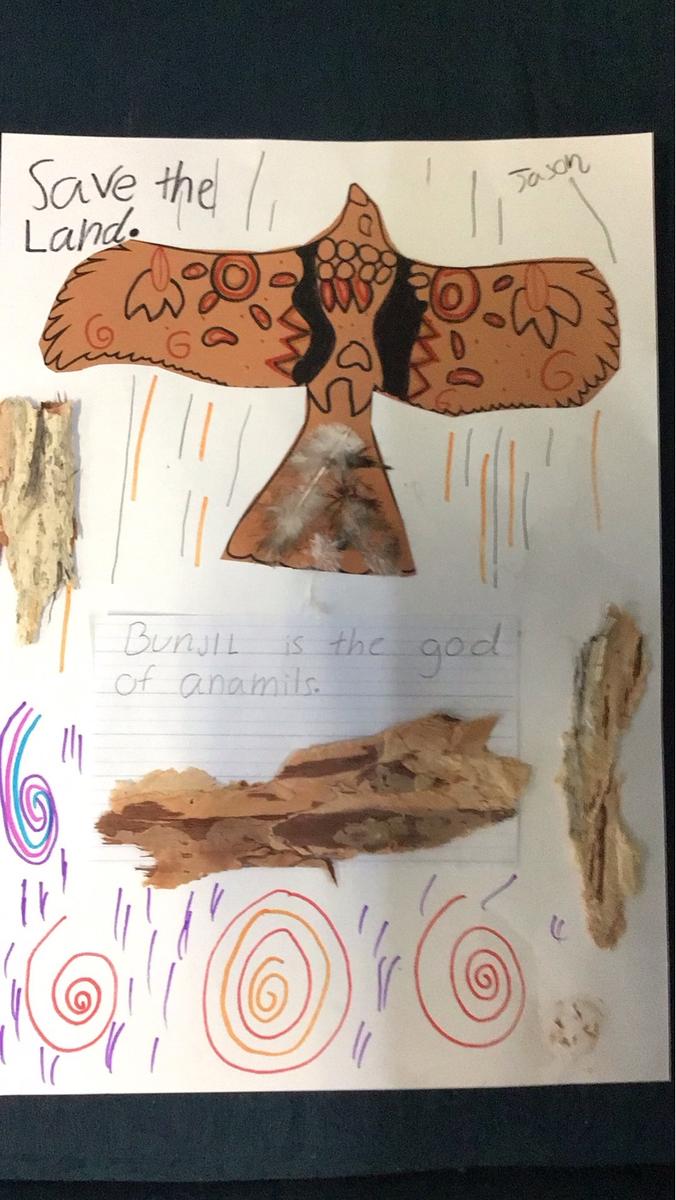
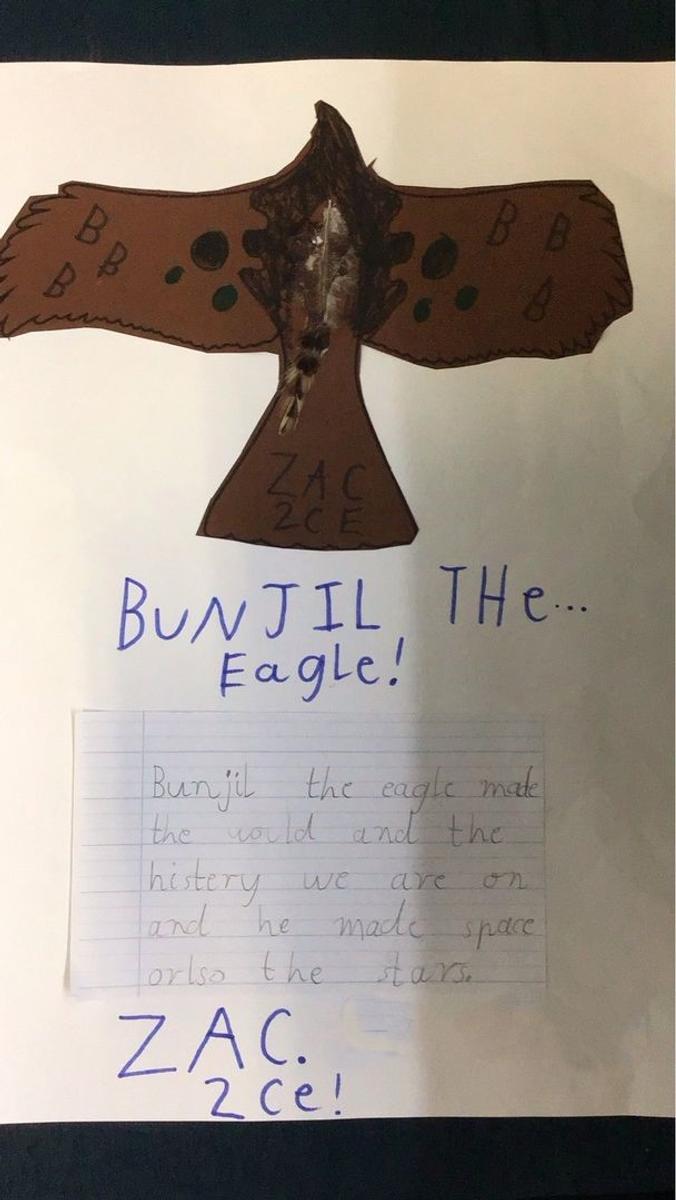
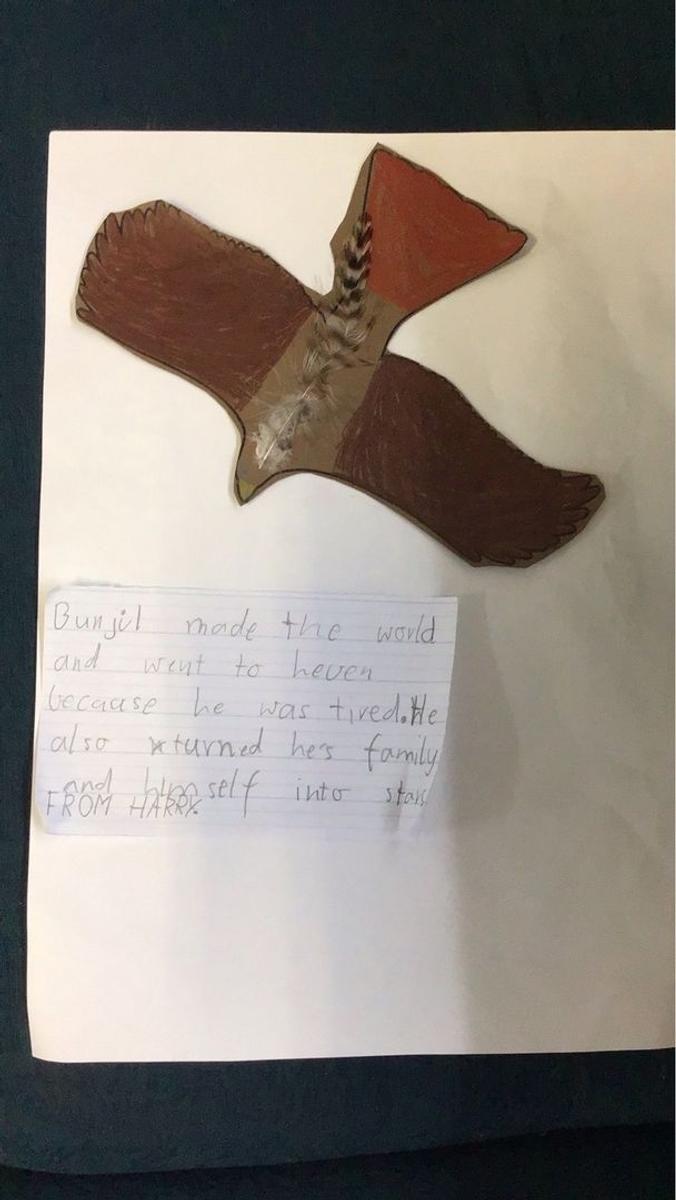






Year Three:
In Year Three, students explored the importance of National Reconciliation Week. They discussed the question: “What does reconciliation mean?” and learned how we can take action by deepening our understanding of Aboriginal history and culture.
Students reflected on the injustices Aboriginal and Torres Strait Islander peoples have faced in the past, and how we can now work together to create a more respectful and inclusive future. They explored the idea of “building a bridge” - a symbol of coming together, listening, learning, and taking positive steps toward reconciliation.
As a way of taking action, students created their own personal Acknowledgements of Country, expressing respect for First Nations peoples and a commitment to caring for the land and community.
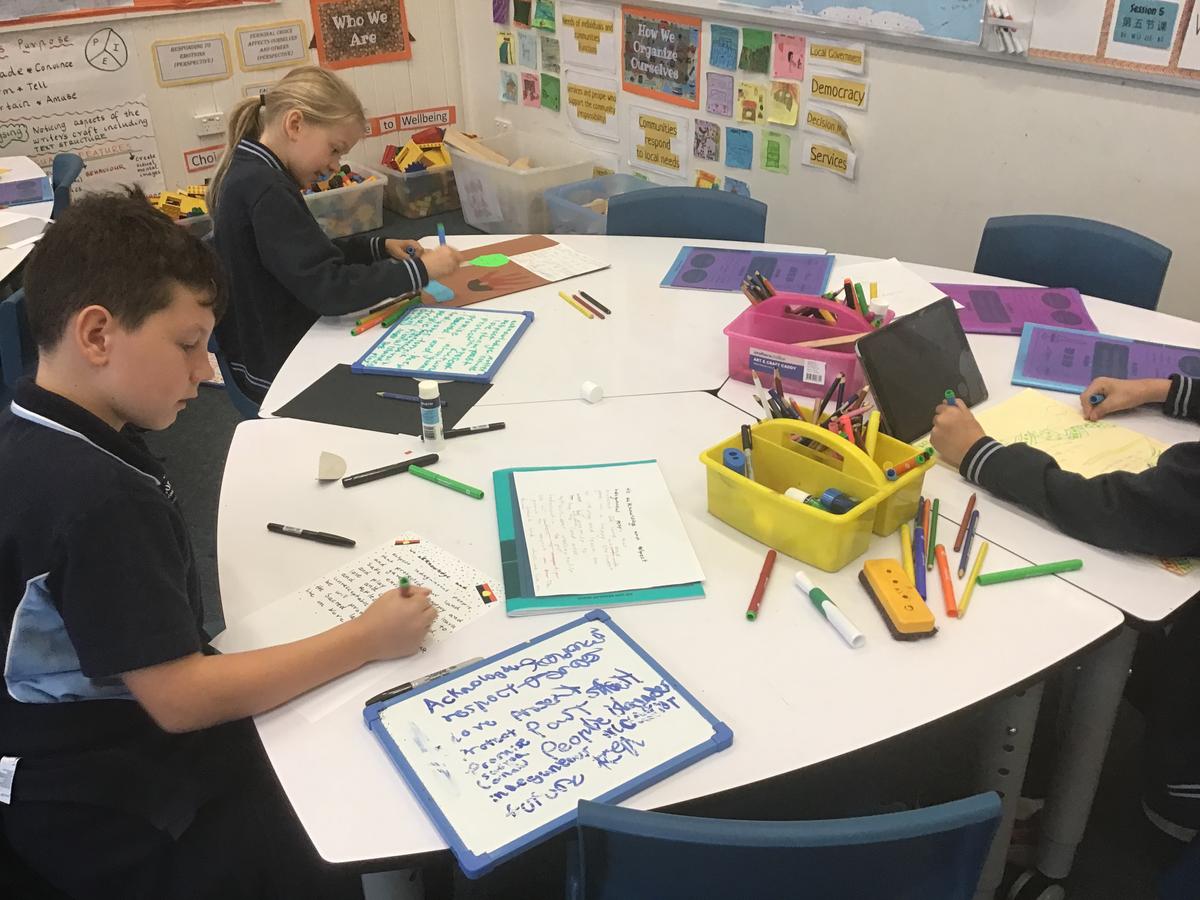
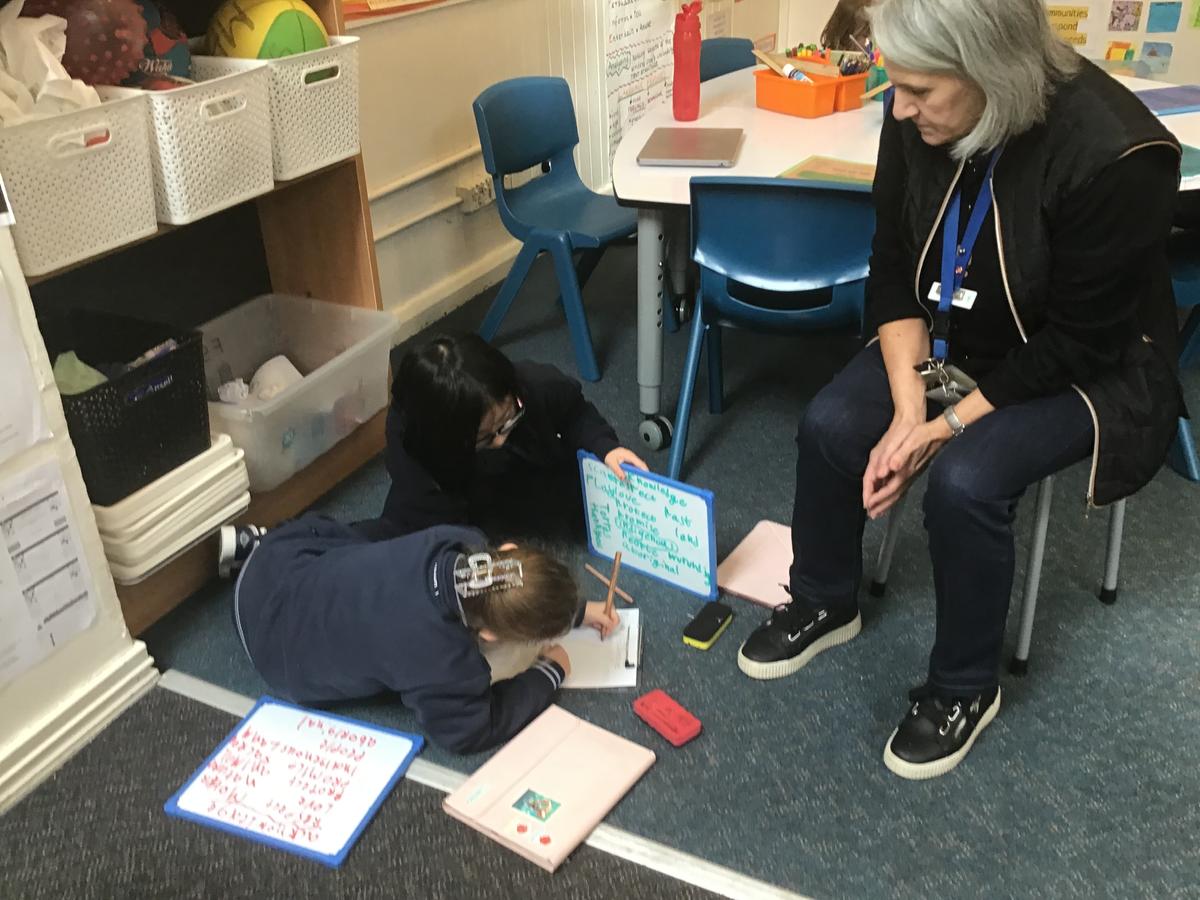
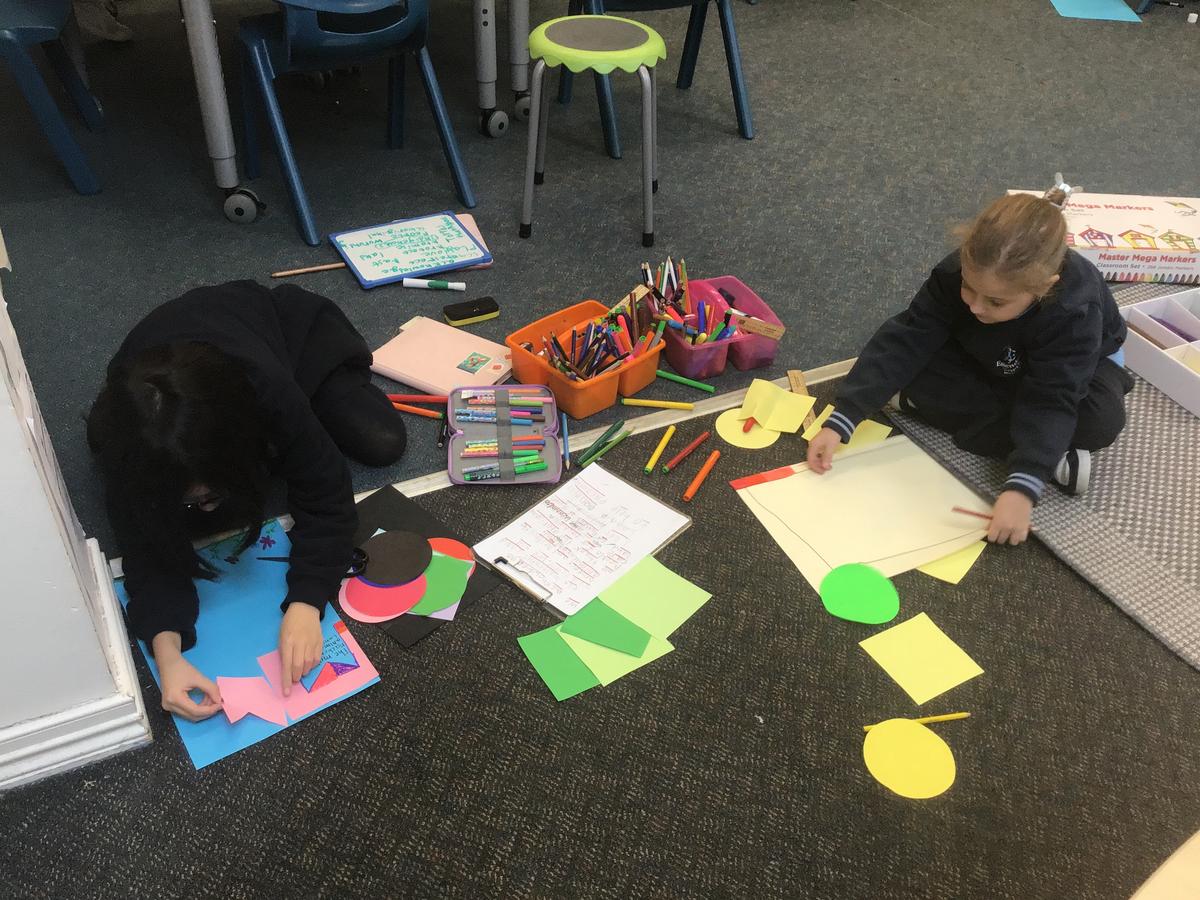
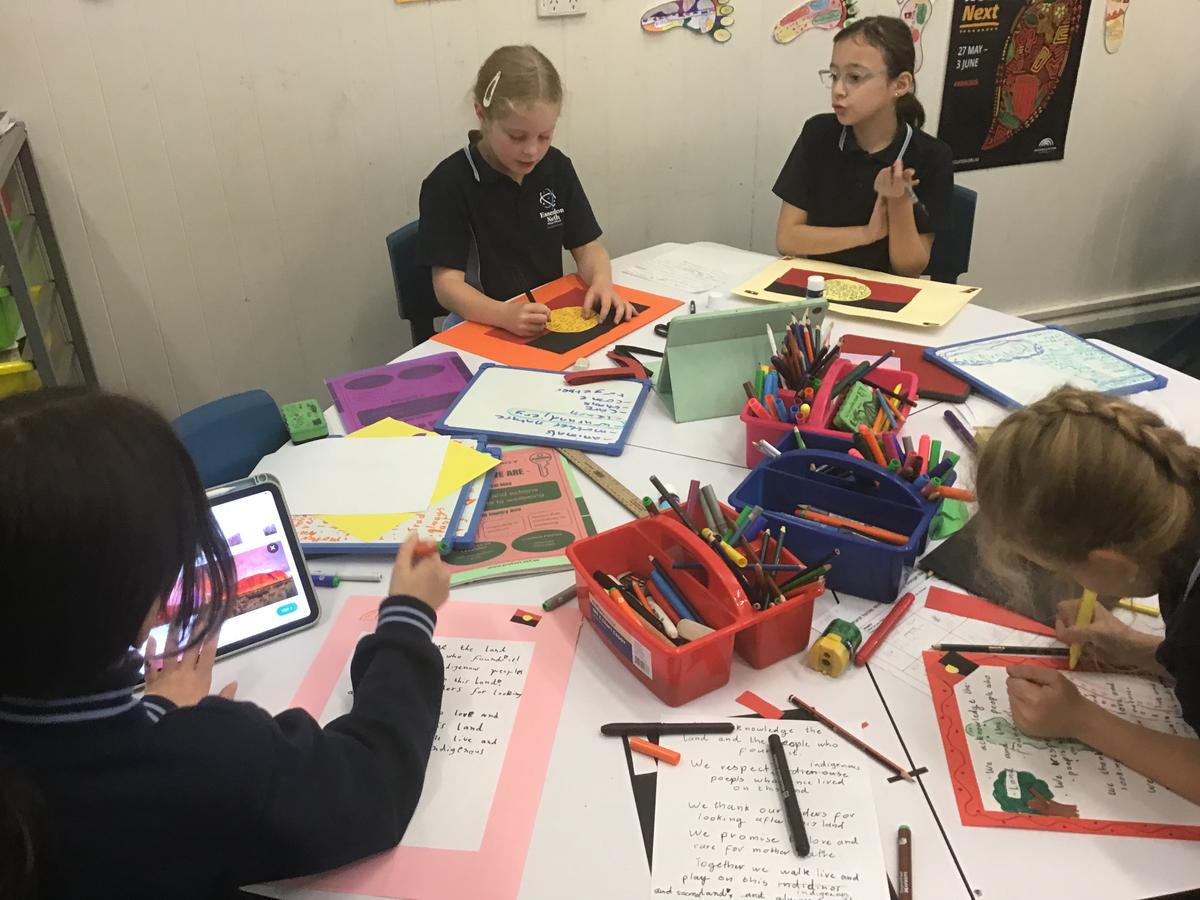




Year Four:
In Year Four we have been inquiring into the central idea, Exploration has impacted indigenous culture. Part of this learning has been to write factual recounts under the topic: What has Australia done to amend the impact of colonisation. Students researched Reconciliation week, Mabo day, Sorry Day and the change in the national anthem to create their factual recounts.
A further action from this inquiry has been for students to create their own Acknowledgement of Country which they will share with their peers.
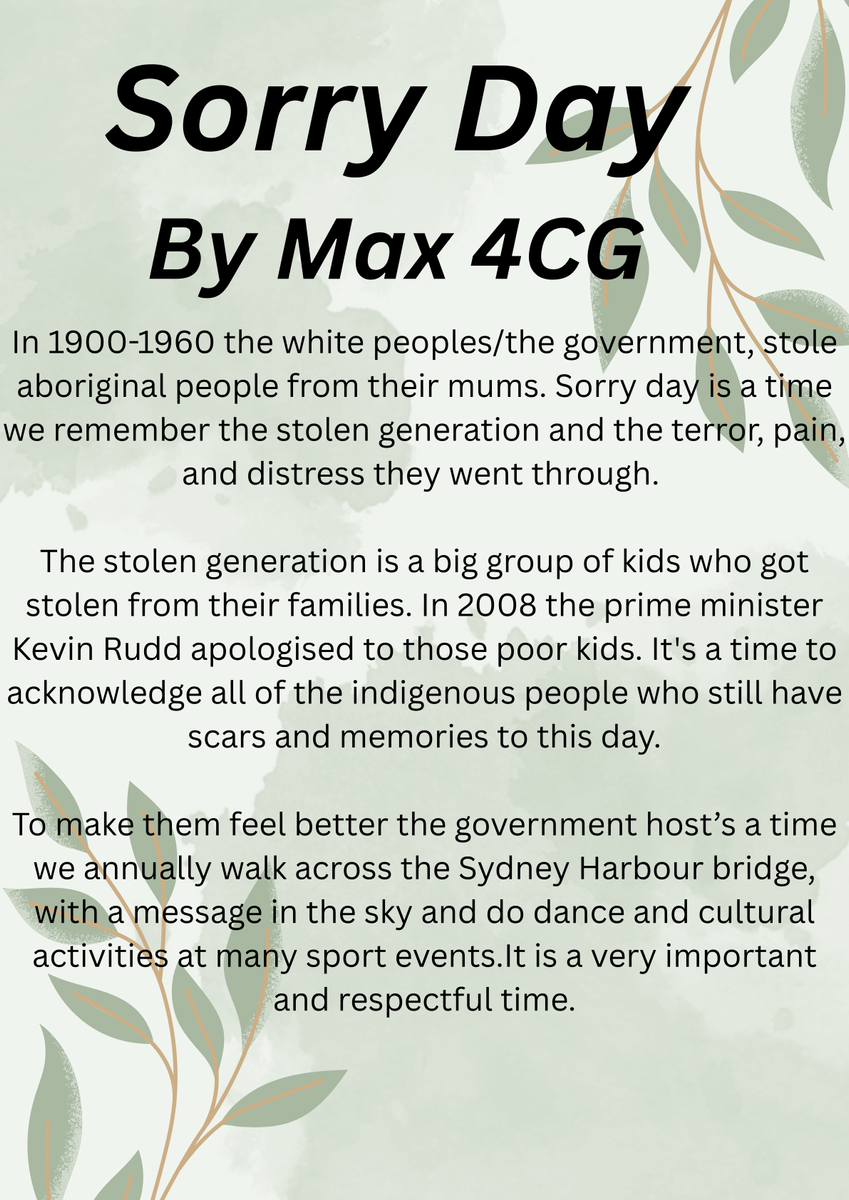
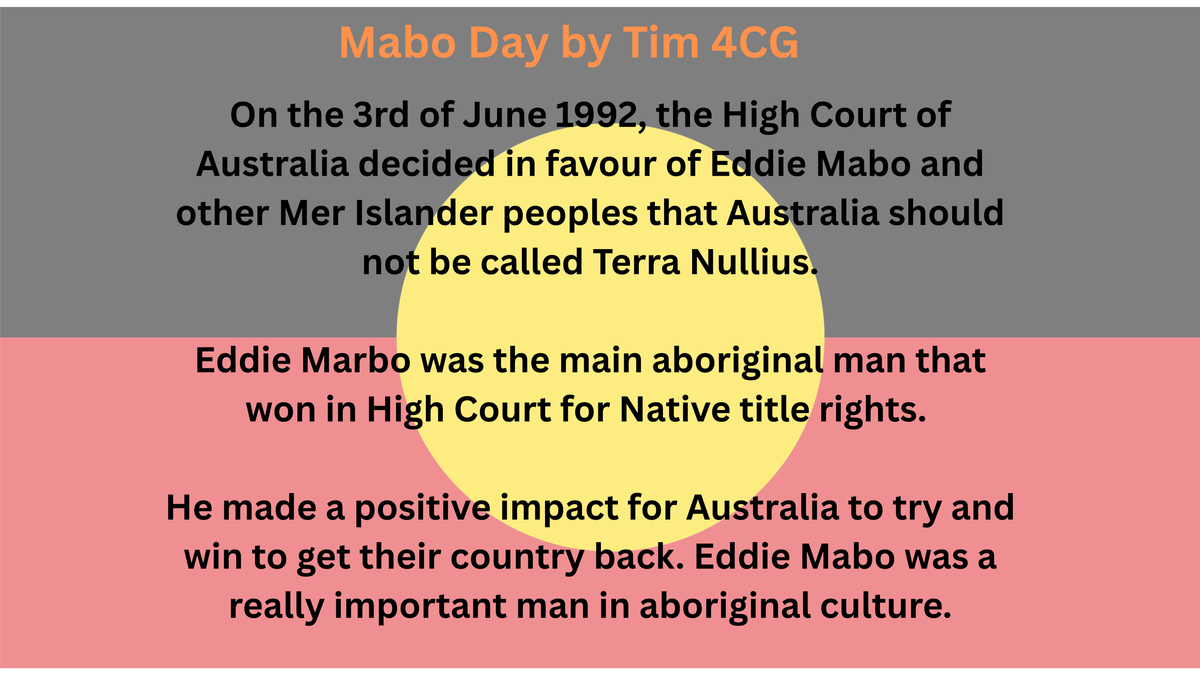


Year Five:
In Year Five, students connected their learning to our Where We Are In Place And Time unit, exploring significant events of the 1800s that shaped Australia as a nation - with a particular focus on Indigenous and colonist relations.
They engaged deeply with the National Reconciliation Week theme by reflecting on the missteps of the past and considering how we can strengthen our own awareness, as well as inspire those around us, to move forward together “from now to next”.
As a response, students created powerful personal statements reflecting their commitment to reconciliation. These statements were displayed on leaf templates, symbolising growth, unity, and a shared journey towards a more inclusive future.
Year Six:
In Year Six students have been inquiring into Reconciliation Week by finding out about the native flora. They then looked at the significance of the AFL Sir Doug Nichollas round and the team's guernsey designs.
Using the native flora to reflect our area students designed a guernsey to reflect their connection to Country in the local area.
This morning we held a special National Reconciliation Week whole school assembly, whereby our fabulous School Captains Astin, Sam and Engy did a marvellous job hosting.
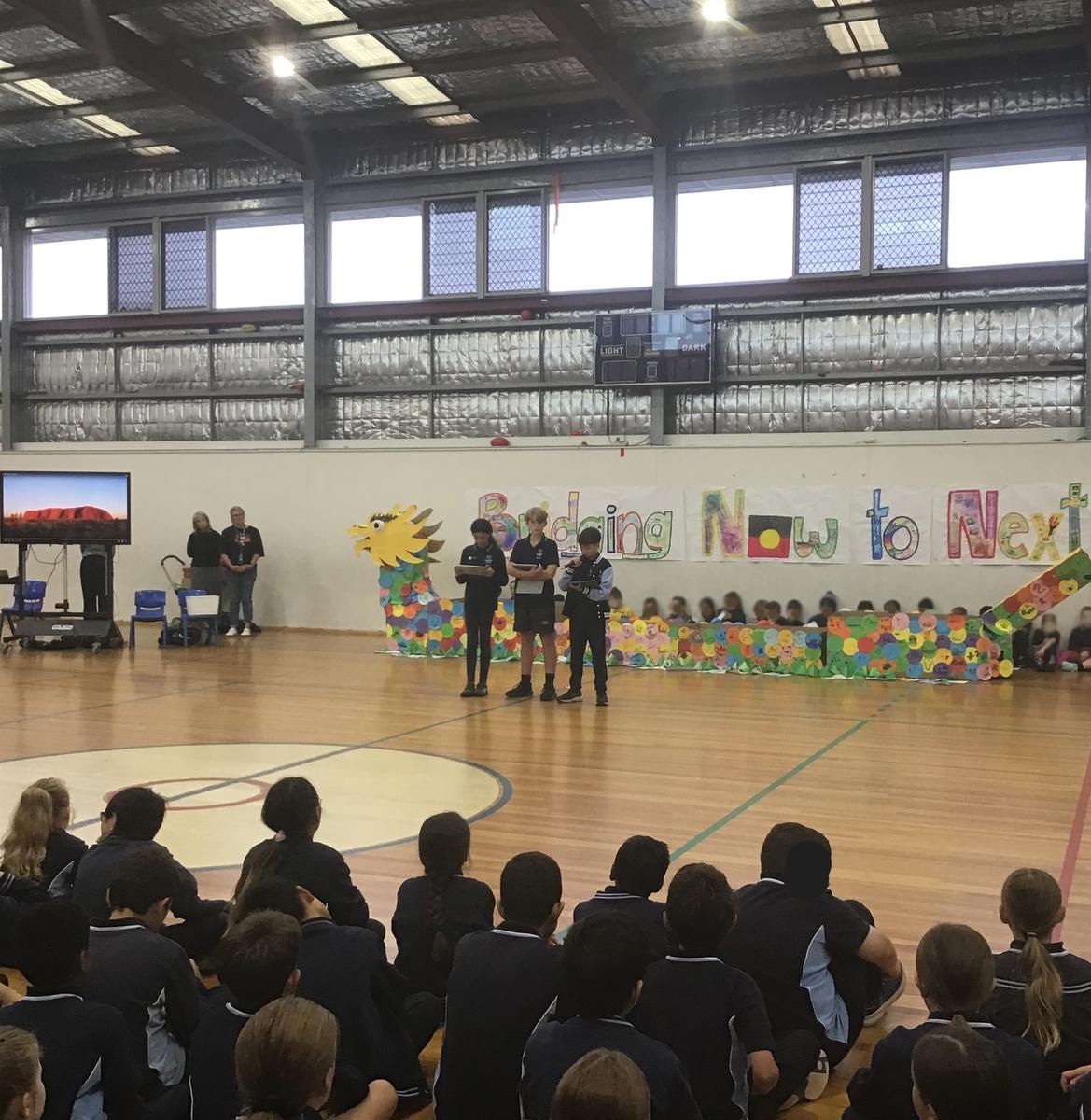
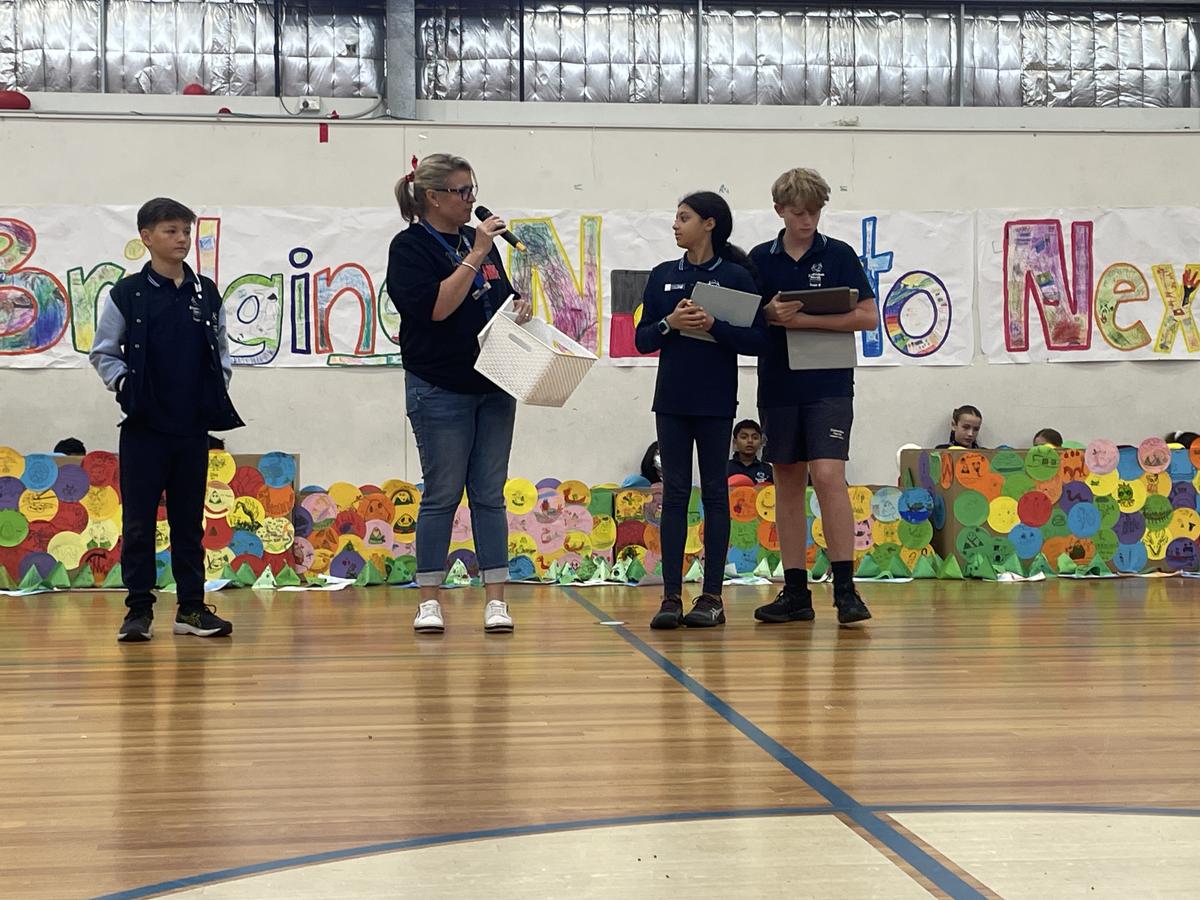
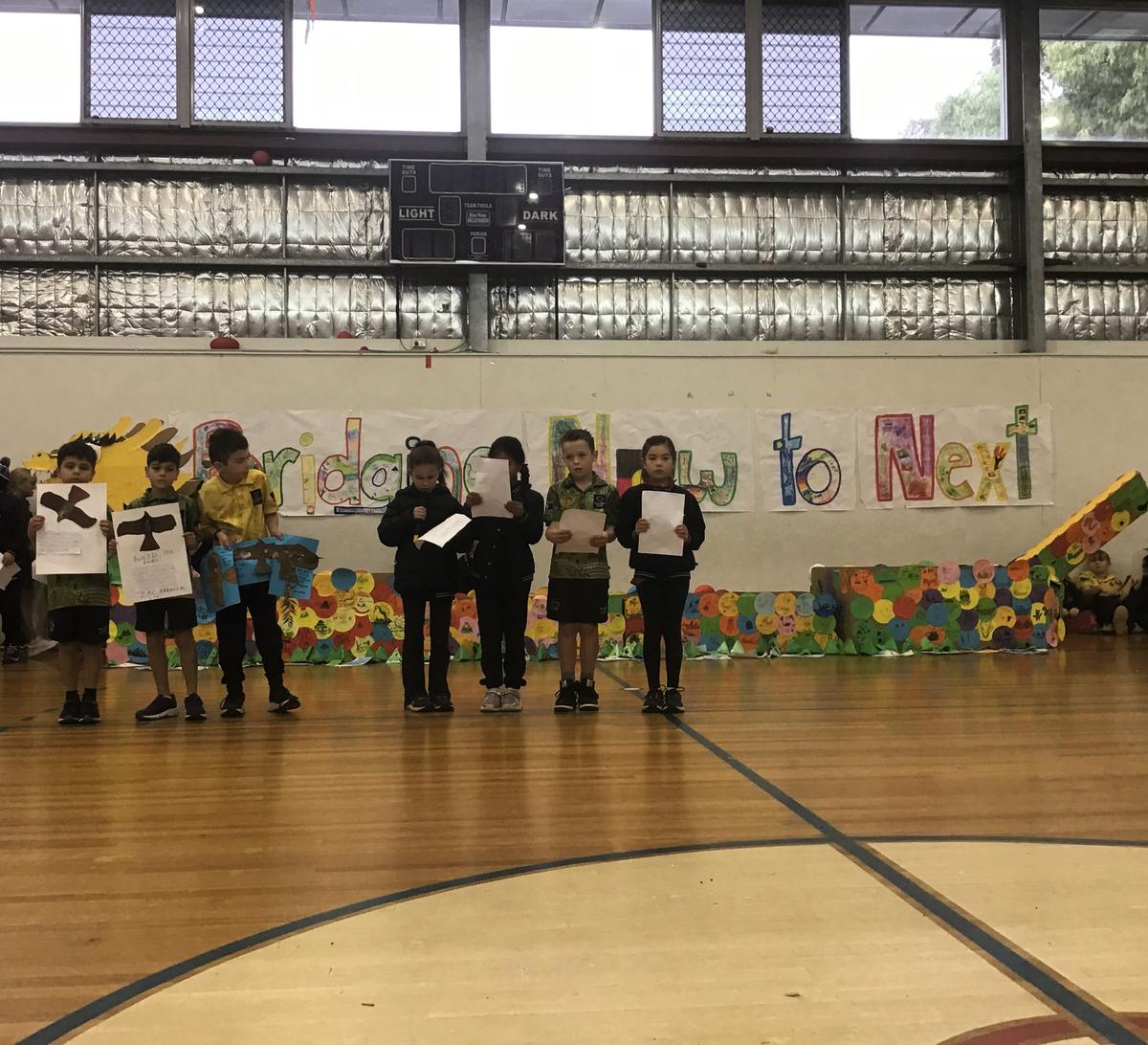
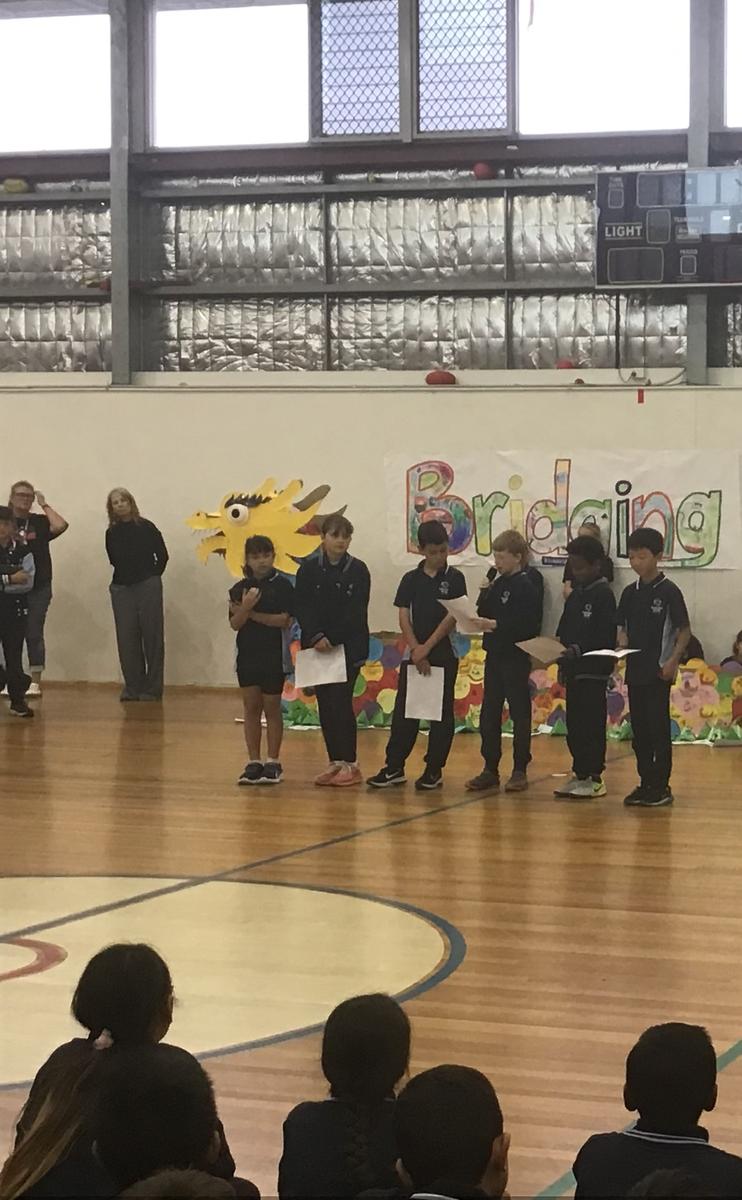
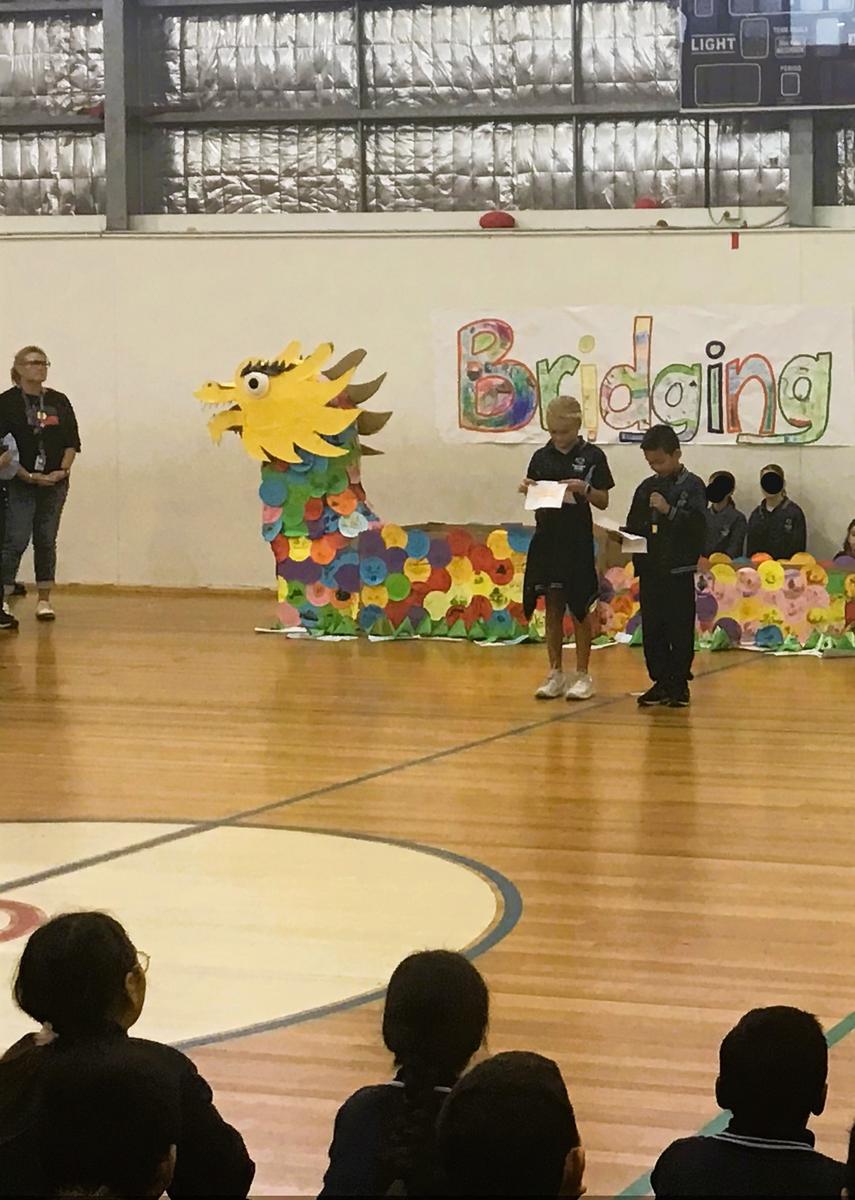
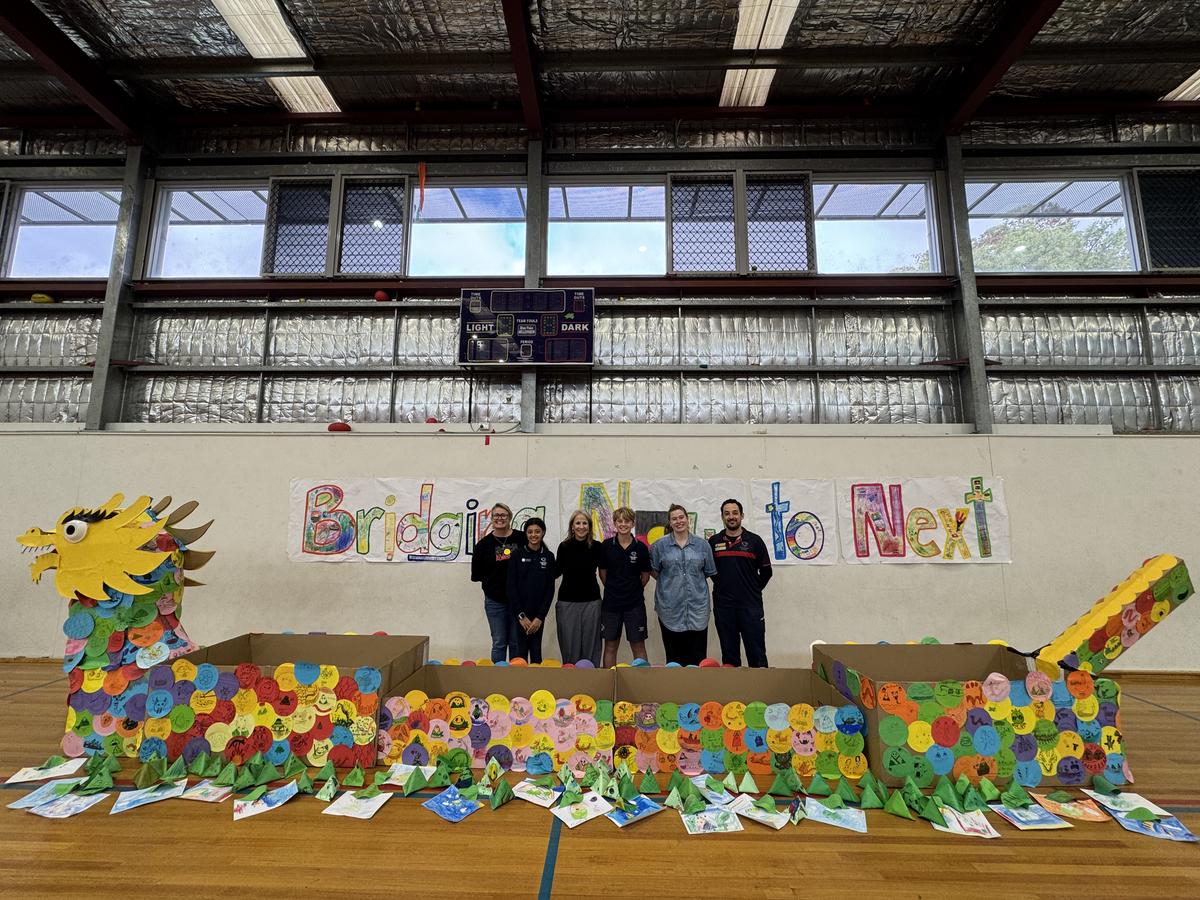






Astin:
I recognise the aboriginal and Torres Strait Islander peoples of Australia as the first
custodians and carers of this country.
Sorry Day means to me more than just a date on a calendar, it’s a reflection of how
unfortunate and cruel the first settlers were to aboriginal and Torres Strait Islander people.
Not many people are educated about what happened on those fateful days where women, men and children were widely killed for trying to protect their sacred land.
Mass genocides happened all throughout the country from the British settlers on their arrival.
Many children were taken away from their families for no apparent reason other than the settlers thinking it was the right thing to do. These people are now known as the stolen generation.…
Could you imagine being placed in a new home without your parents or carers?
We need to all say sorry for what has happened in the past and acknowledged the events that took place for years to come.
Sam:
Hello everyone, today I will be talking to you about National Reconciliation Week.
Reconciliation Week is where Australians come together to learn, reflect and work towards strengthening relationships between Aboriginal and Torres Strait Islander peoples and the wider Australian community.
During this week, we learn more about the history, cultures and traditions of our nation's first people. We can do this by listening to the stories of aboriginal and Torres Strait Islander people, through books, film and truth telling.
We reflect on the injustices and wrongs that have occurred since colonisation that have contributed to intergenerational trauma. We need to listen with respect because learning from the past helps us work towards reconciliation.
We work towards improving respect and understanding of different cultures, which will help us address ongoing issues of racism, inequity and injustice.
Travelling Australia last year I stayed in remote aboriginal communities and visited towns where I could see both the strengths and the challenges facing many aboriginal communities. We spent a day in Lombadina in far North WA with a local guide who taught us about bush medicine, fishing and the impact of the stolen generation on his family.
For me, Reconciliation Week is about us all committing to learning more so that we can help make our country a more inclusive, fair and better place for everyone.
Thank you everyone for listening and a great rest of the day.
Engy:
At Essendon North Primary School we strive to develop international mindedness by a strong sense of self and having the acceptance of other cultures, countries and customs. What the Reconciliation Week's theme "bridging now to next" means to me is that we emphasize the importance of acknowledging the history and past, reflecting on the present and working towards a better future through strong respectful relations and meaningful actions.
Special thank you to Miss Morgan and Mrs Koepke De Angelis and members of ENPS Dance Club with a wonderful tribute to Miriam Makeba. This song is a tribute to Miriam Makeba, who was a famous South African singer and human rights activist. She played a big role in the reconciliation process to end apartheid in South Africa. So, this dance shows that we’re all from different cultures, but we can celebrate life and have fun together at ENPS!
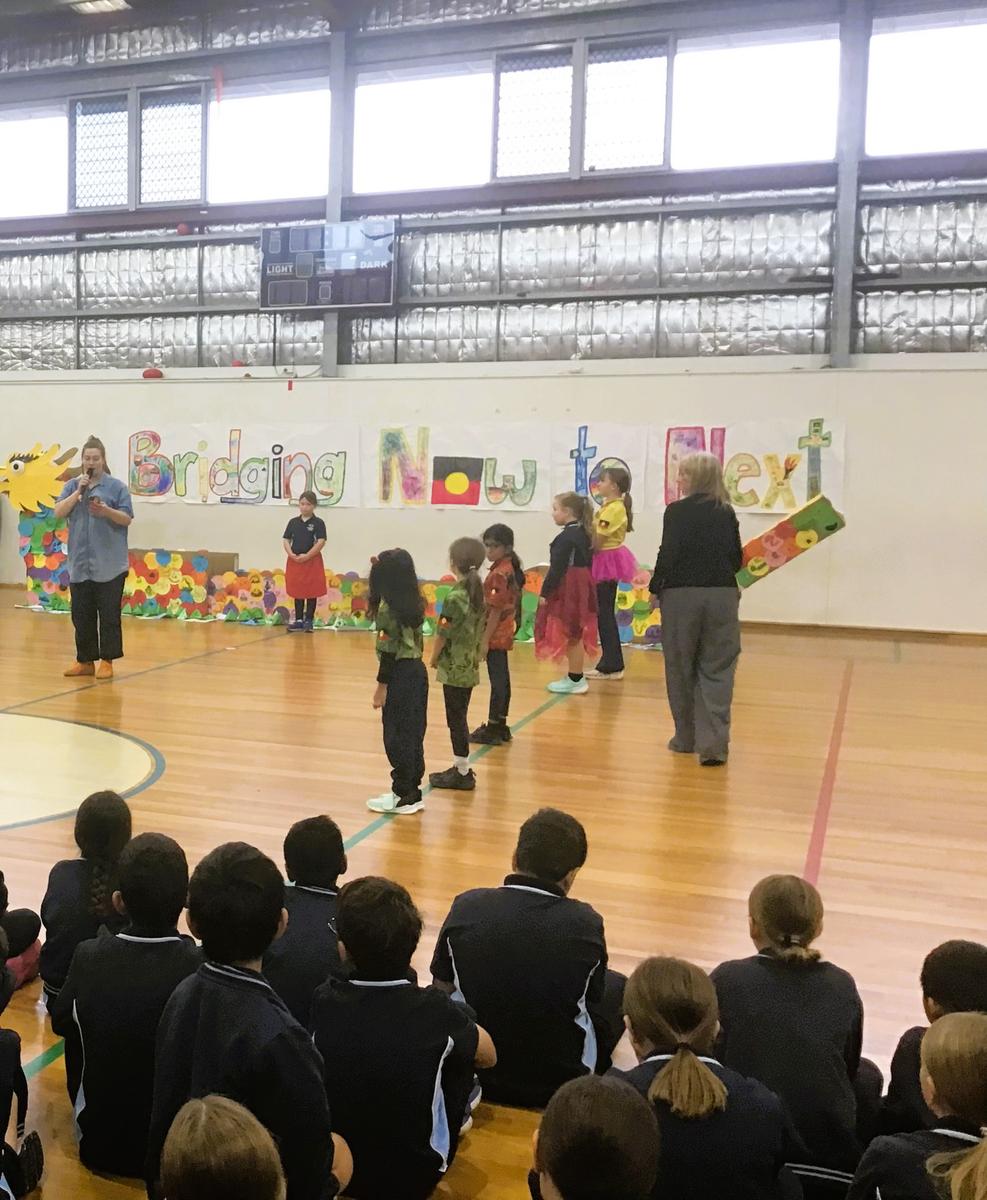
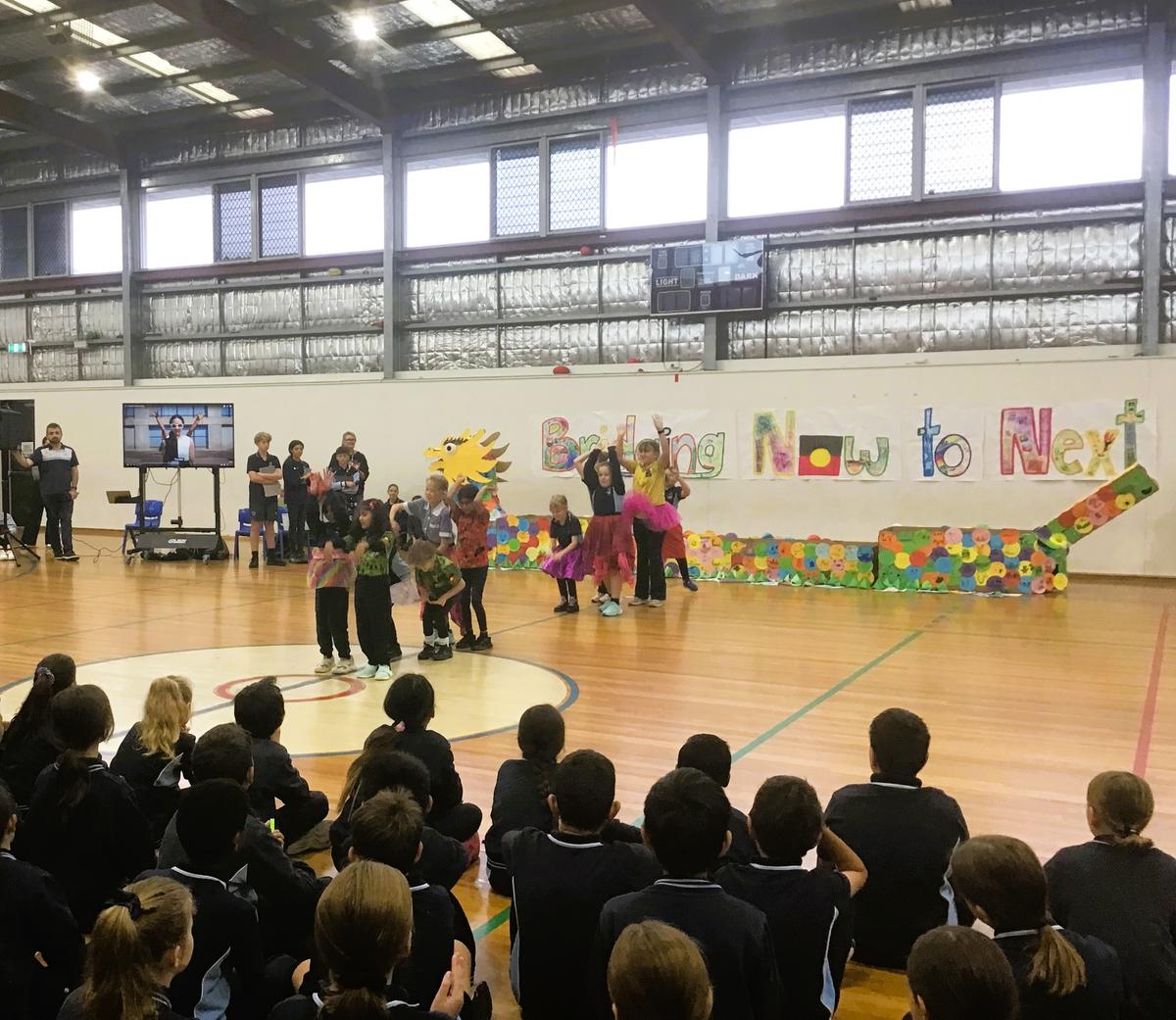
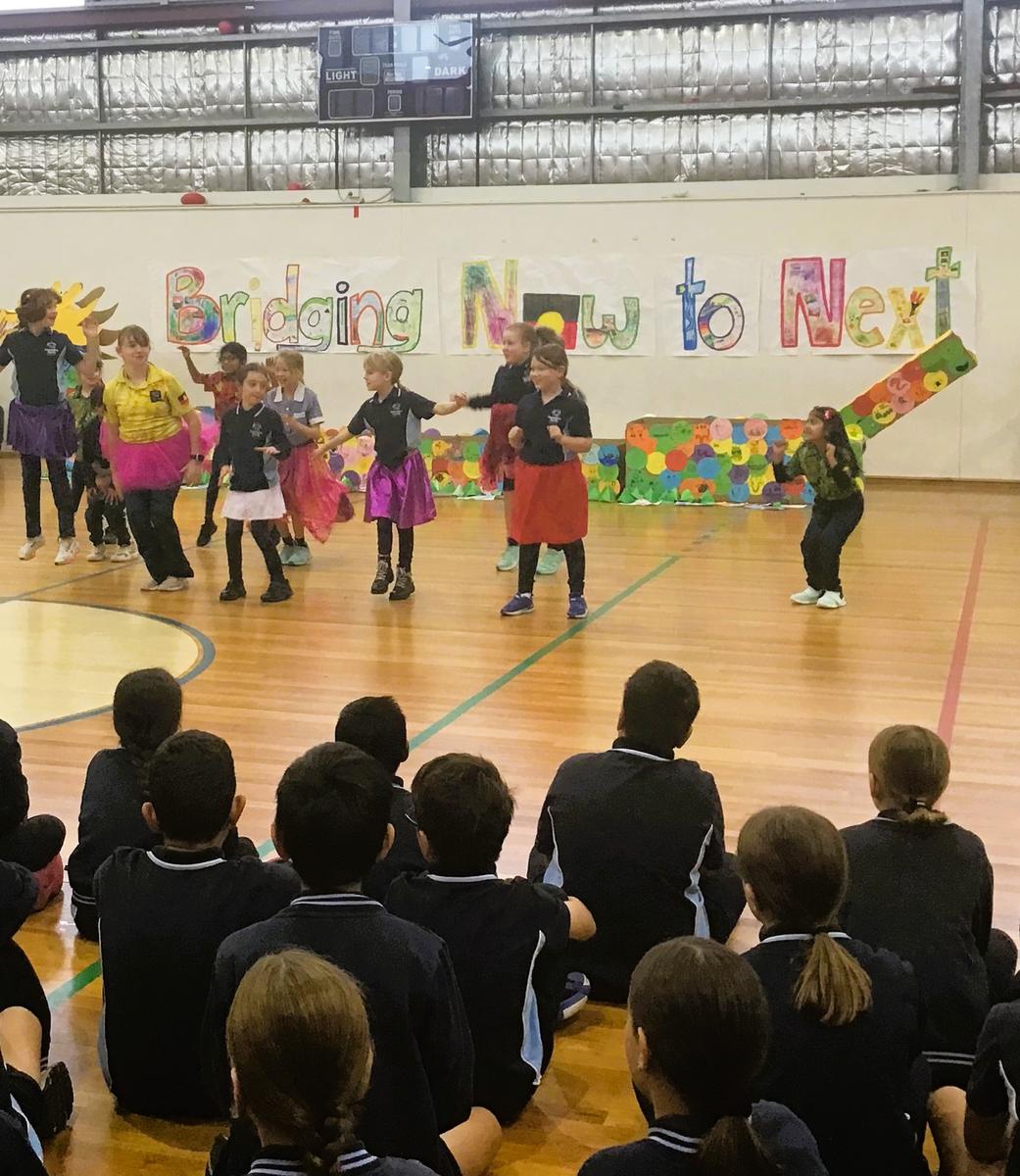
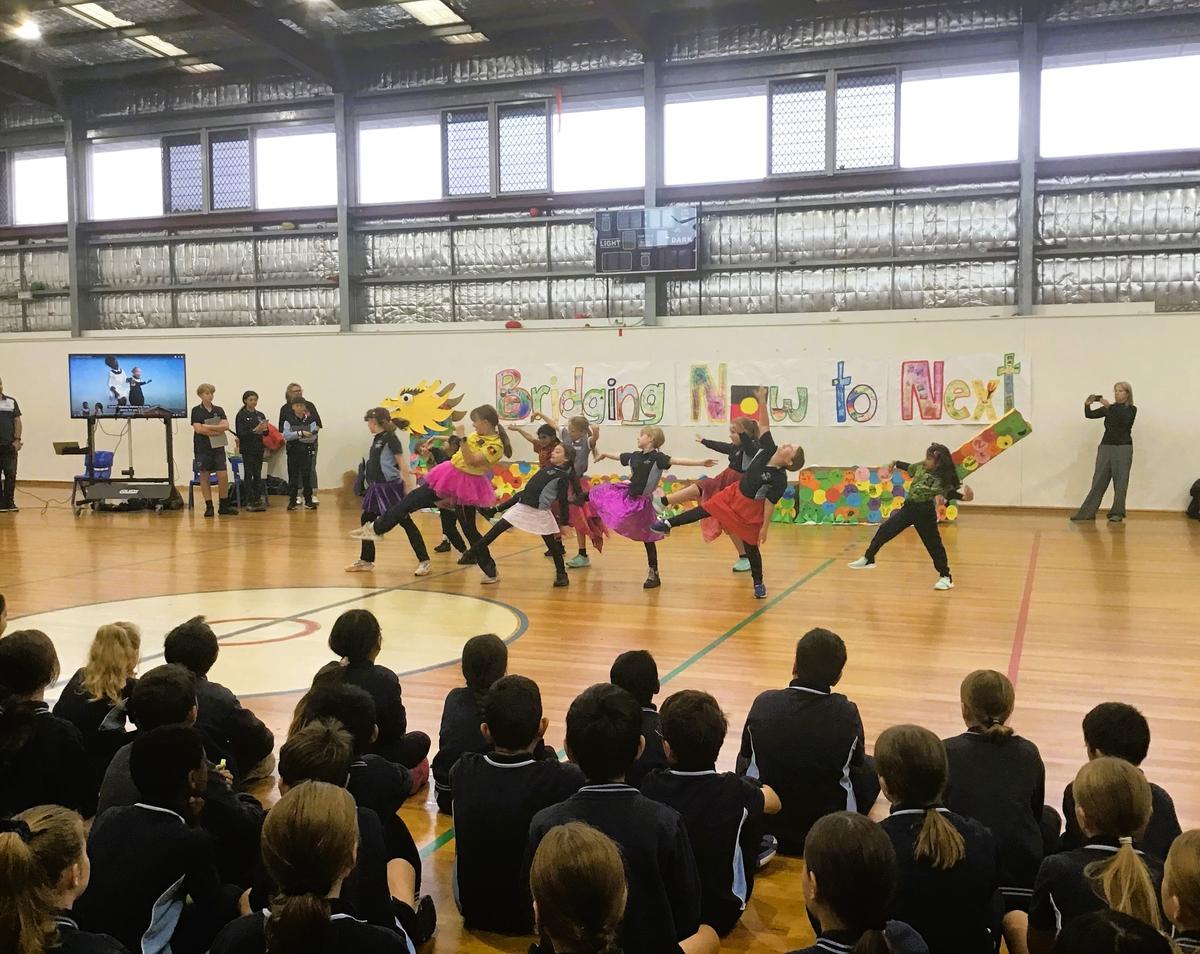
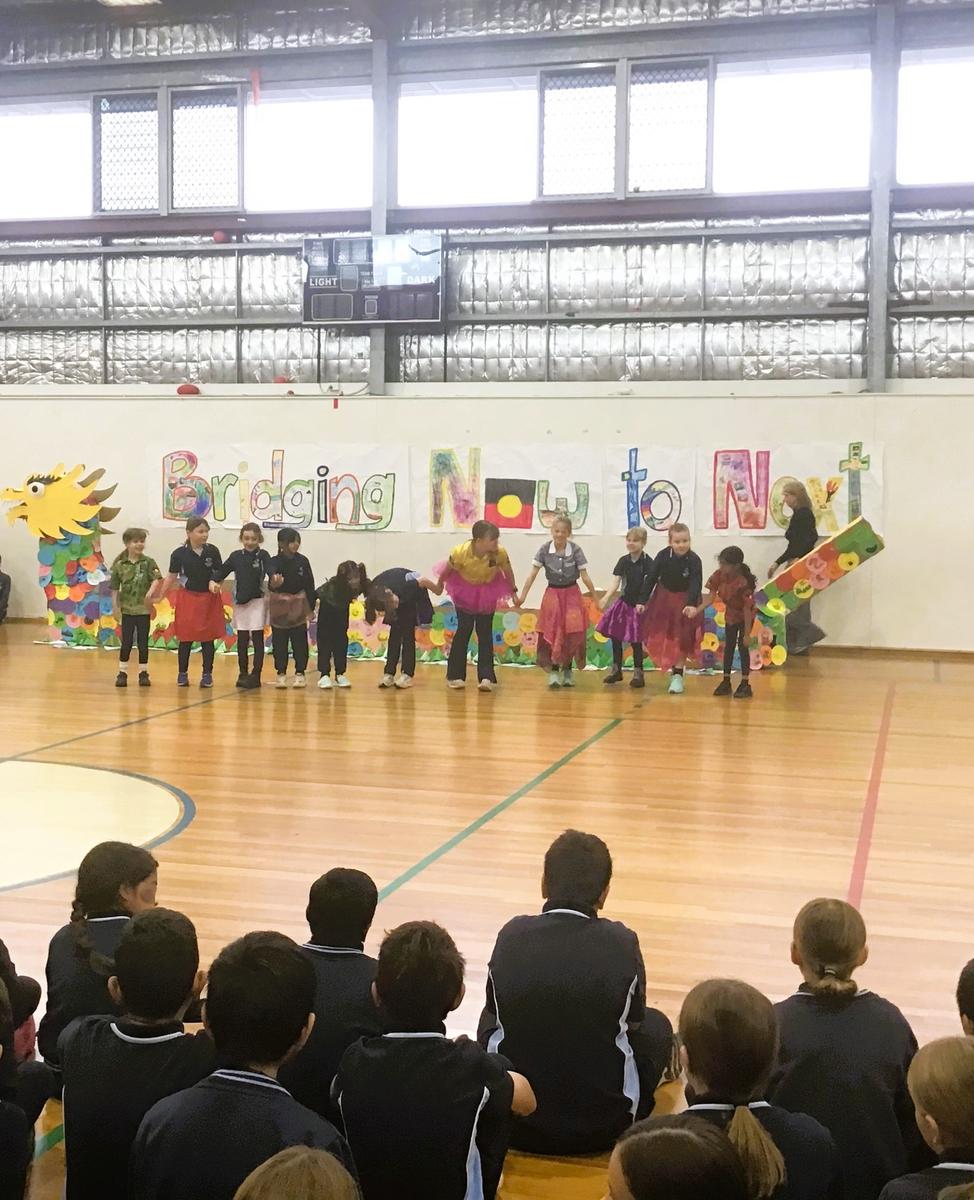





Well done to our amazing Dance Club performers Ilena (2LK), Ziana (2CE), Isabelle (2CE), Eva (2CE), Evie (3SM), Leah (3AC), Summer (3AC), Allegra (3JK), Imogen 3KO, Torvi (3SM) and Maia (3SM)! We have also included here the Makeba YouTube video.
Below are some additional personal reflections:
Imogen Westcott-Schuller (Year Four Teacher):
Reconciliation for me is more than one week or significant days. It is an attitude and a commitment I make each day in my actions. It means making choices that champion Indigenous histories, culture, and knowledge. It is to support and stand beside Indigenous people to make a better Australia for us all.
Anthea Christofi (Year Three Teacher):
I think National Reconciliation Week is such an important week for truth-telling, understanding and healing between Indigenous and non-Indigenous Australians. It is a time where we can reflect on our shared history, acknowledge past injustices and look to the future for actions to support reconciliation. In the classroom, it’s a fantastic time to listen to Indigenous voices, celebrate their culture and deepen our respect.
Ben Suter (School Council Member):
I felt most connected to the owners of this beautiful land when I lived in Darwin for five years. I saw the hardship and inequity that Indigenous Australians still endure today. I got to sit on the beach and hear their stories firsthand. And as a meteorologist I was welcomed into their Northern Territory communities following the devastating impacts of tropical cyclones and floods. For me, this week is about identifying an action that keeps my family connected to Indigenous Australia, even if it’s fully immersing ourselves in the First People’s exhibit at Melbourne Museum. I hope we can all take a step this Reconciliation Week to learn about and celebrate Aboriginal and Torres Strait Islander culture, to rebuild trust and respect, close the gaps, and wholly accept our nation’s history.
In concluding our special assembly Mr McIntosh led our school community in singing the song ‘Solid Rock’ written by the band Goanna. The commitment of all year levels to learn the lyrics of the song beautifully reflected the spirit of unity and collaboration at ENPS.
National Reconciliation Week is more than a series of events - it is a reminder of our shared responsibility. It encourages us to confront the truths of our past, celebrate the strength and achievements of First Nations peoples, and explore how we can each play a part in creating a fairer, more equitable Australia.
As a school community, we are committed to fostering a spirit of respect, truth-telling, and unity, ensuring that the lessons of the past inform a brighter, more inclusive future.
By engaging our students in this important national conversation, we empower the next generation to become active participants in reconciliation - bridging the gap between where we are and where we strive to be.
The ENPS Community Engagement and Cultural Inclusion Team
